

Why Facilities Matter Leading a Legacy Church
Facilities that build your Church & Culture
Purpose-built Kids spaces
Please, Drop The Stones





Why Facilities Matter Leading a Legacy Church
Facilities that build your Church & Culture
Purpose-built Kids spaces
Please, Drop The Stones


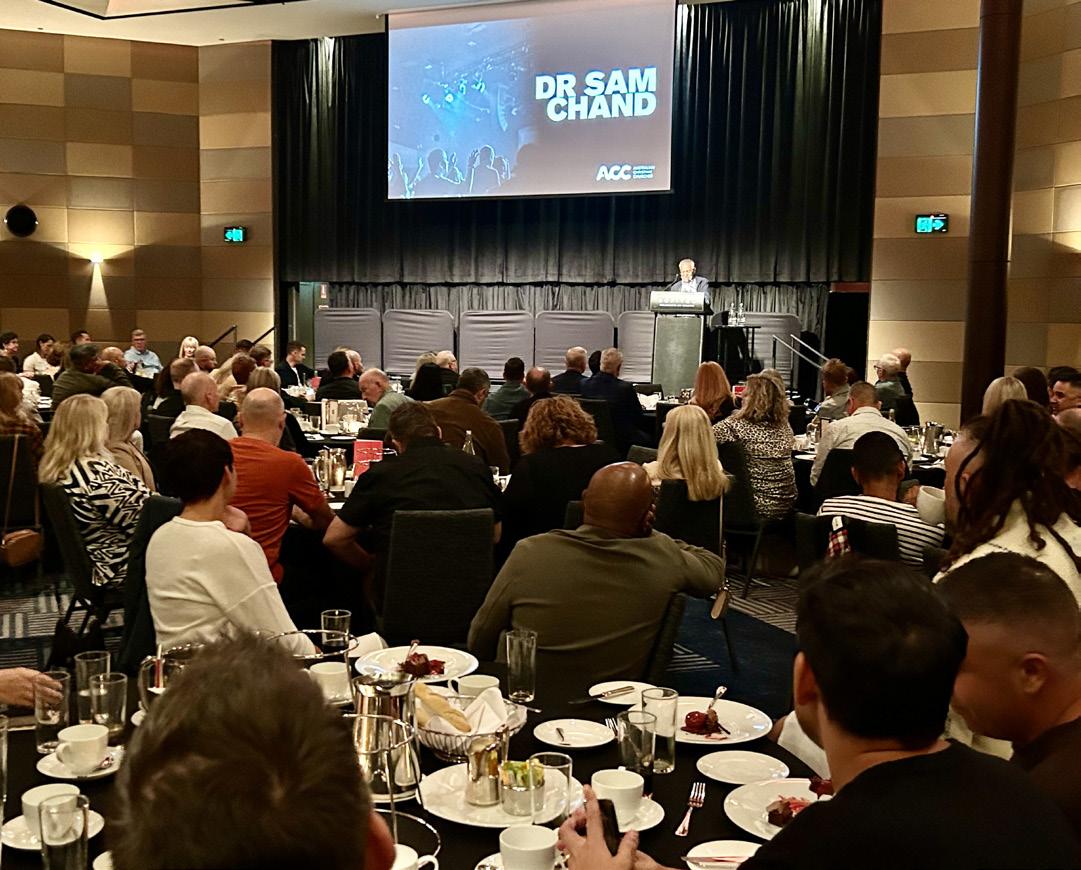

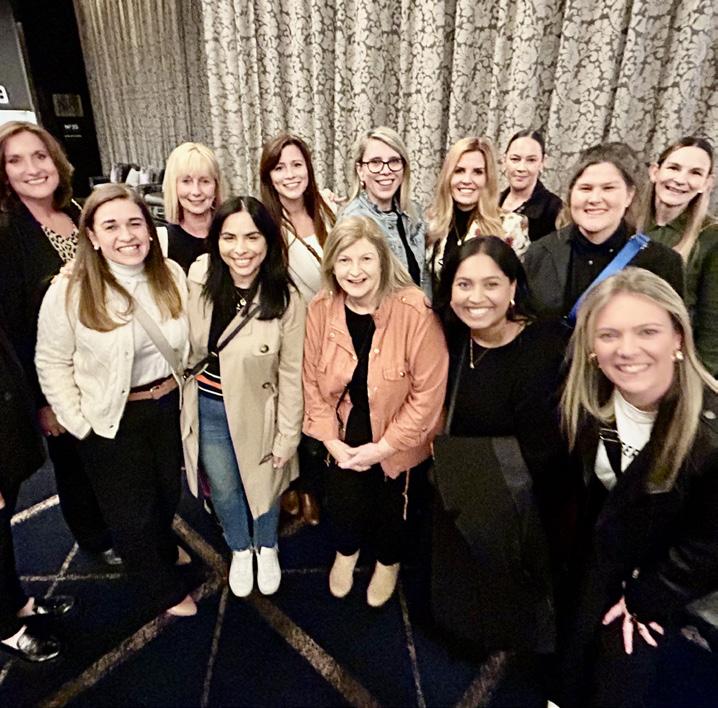

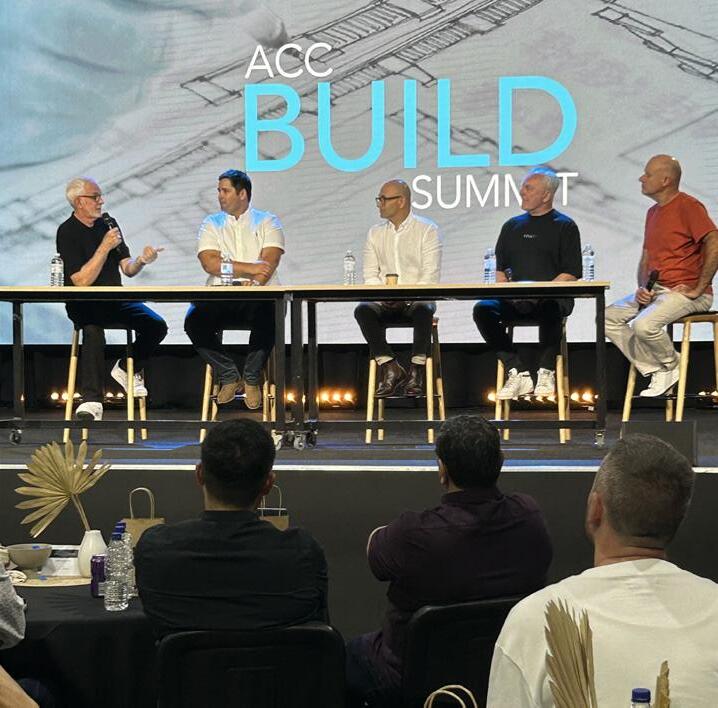
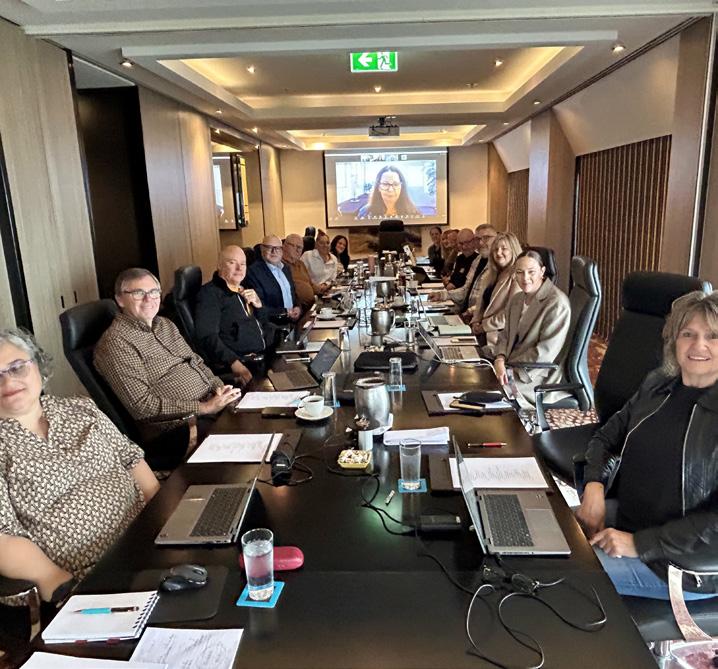
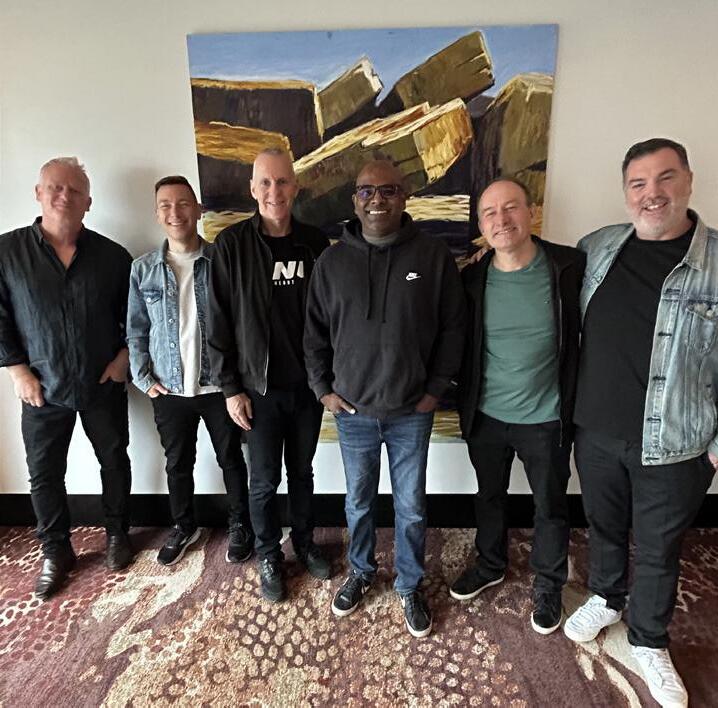

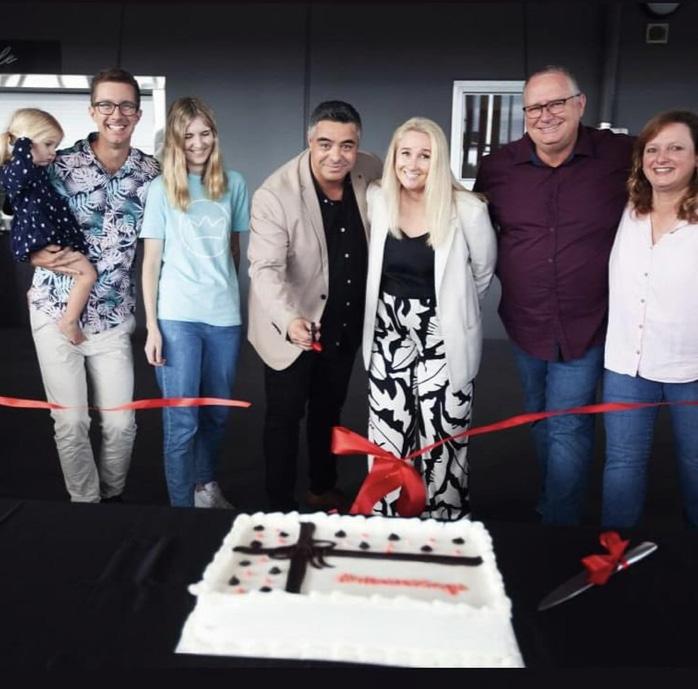
Alphacrucis University College (AC) celebrated its 76th anniversary with a momentous graduation ceremony in Sydney on June 6, 2024. This event underscored the college’s enduring commitment to shaping Christian leaders who make a profound impact on all spheres of society.
The ceremony saw a full house, with over 1,000 attendees including family, friends, and AC staff, who gathered to celebrate the achievements of 926 graduates. Among them, 186 graduates proudly walked the stage to receive their awards.
Pastor Ben Naitoko, King’s Church and ACC QLD State President who is also a graduate of the college, gave the keynote speech on perseverance
This year’s graduating class is a testament to the diverse and comprehensive education provided by AC. The 926 graduates received awards ranging from Certificate and Diploma to Bachelor’s, Master’s and Doctoral (PhD) degrees. The discipline areas were as diverse :
• 540 graduates in Ministry, Theology, and Leadership
• 245 graduates in Chaplaincy, Counselling, and Community Services.
• 66 graduates in Education and Teaching
• 75 graduates in Business and Arts
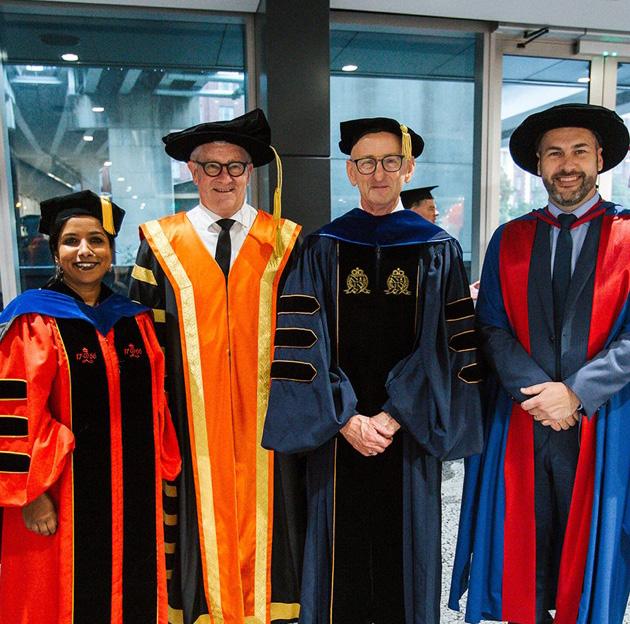
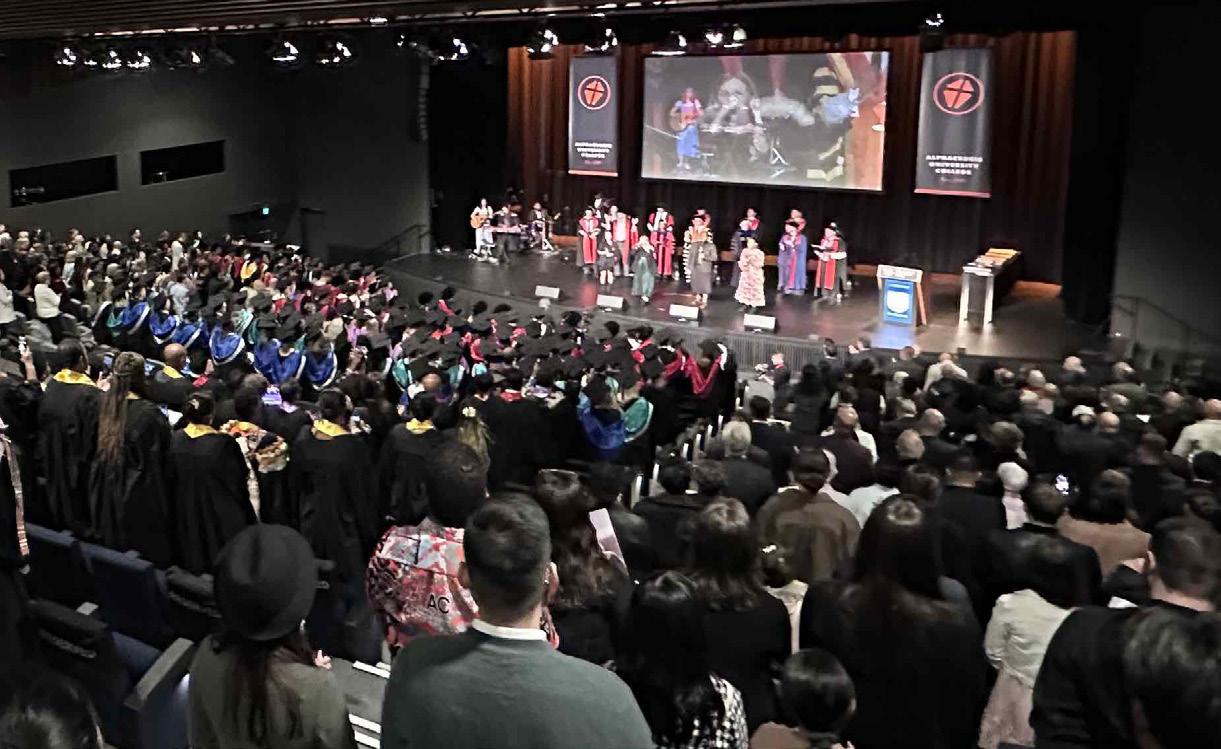
Stephen Fogarty, President of AC, remarked, 'This milestone is not just a celebration of our graduates but also a reflection of our unwavering mission to equip Christian leaders to bring positive impact and influence across sectors as diverse as ministry, education, businesses and community services.'
'We extend our heartfelt gratitude to the pastors, school, community, business leaders, donors, and educators who continue to support our mission. Together, we are transforming lives and communities, ensuring that the legacy of AC continues to flourish for generations to come.'
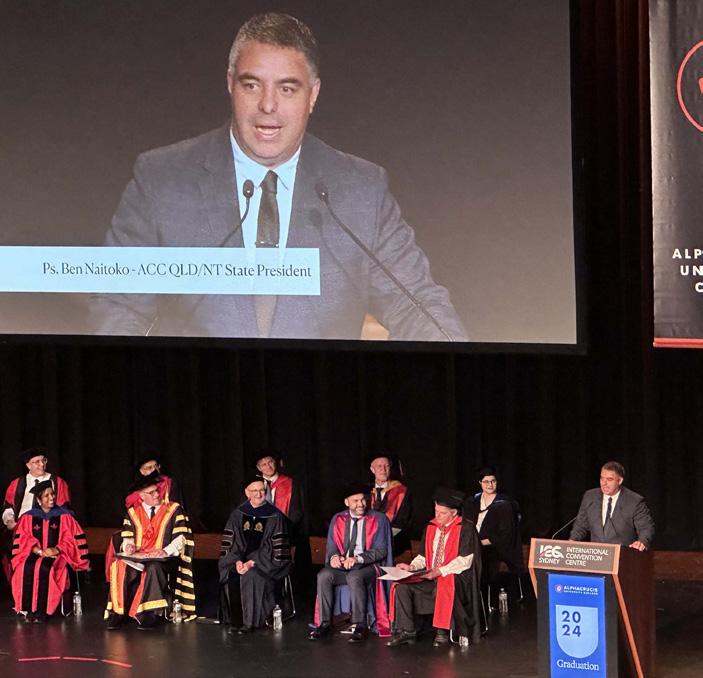




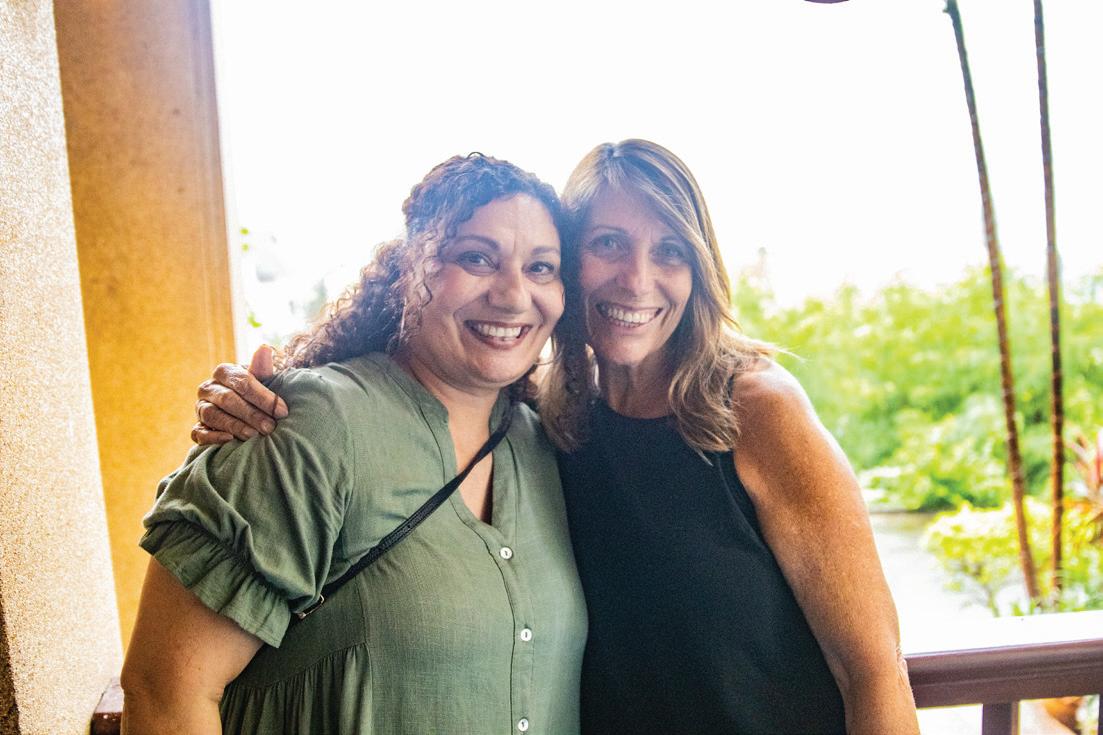
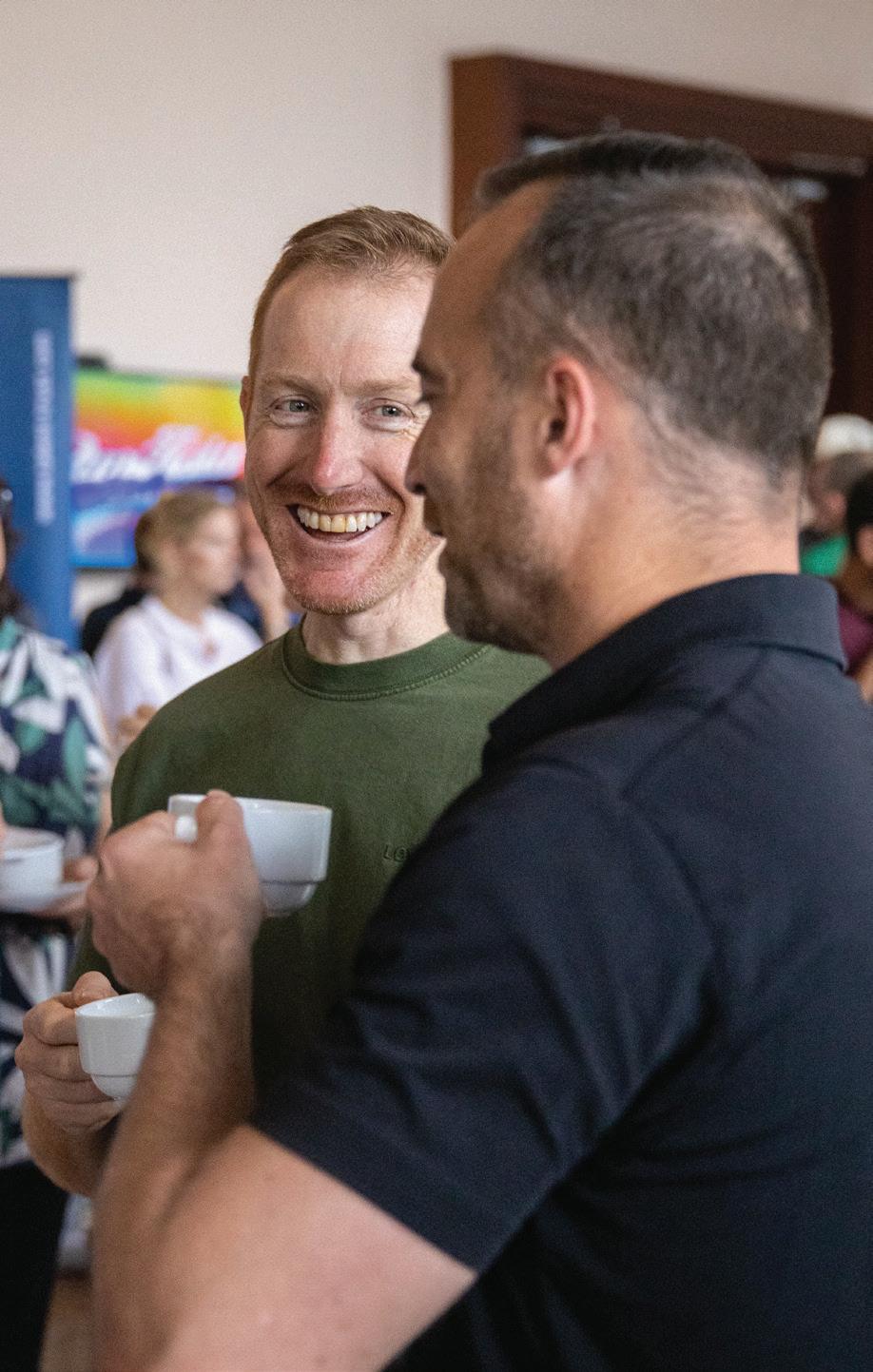
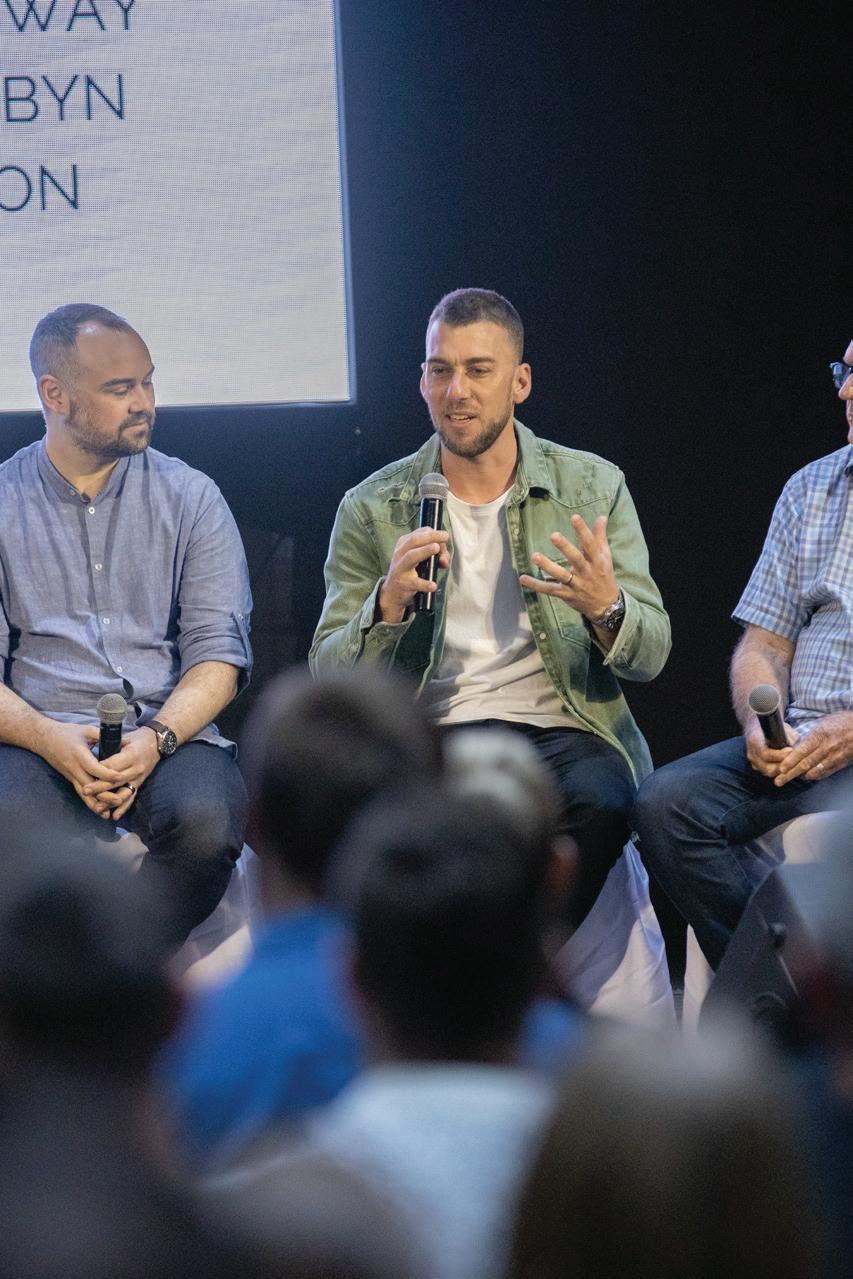
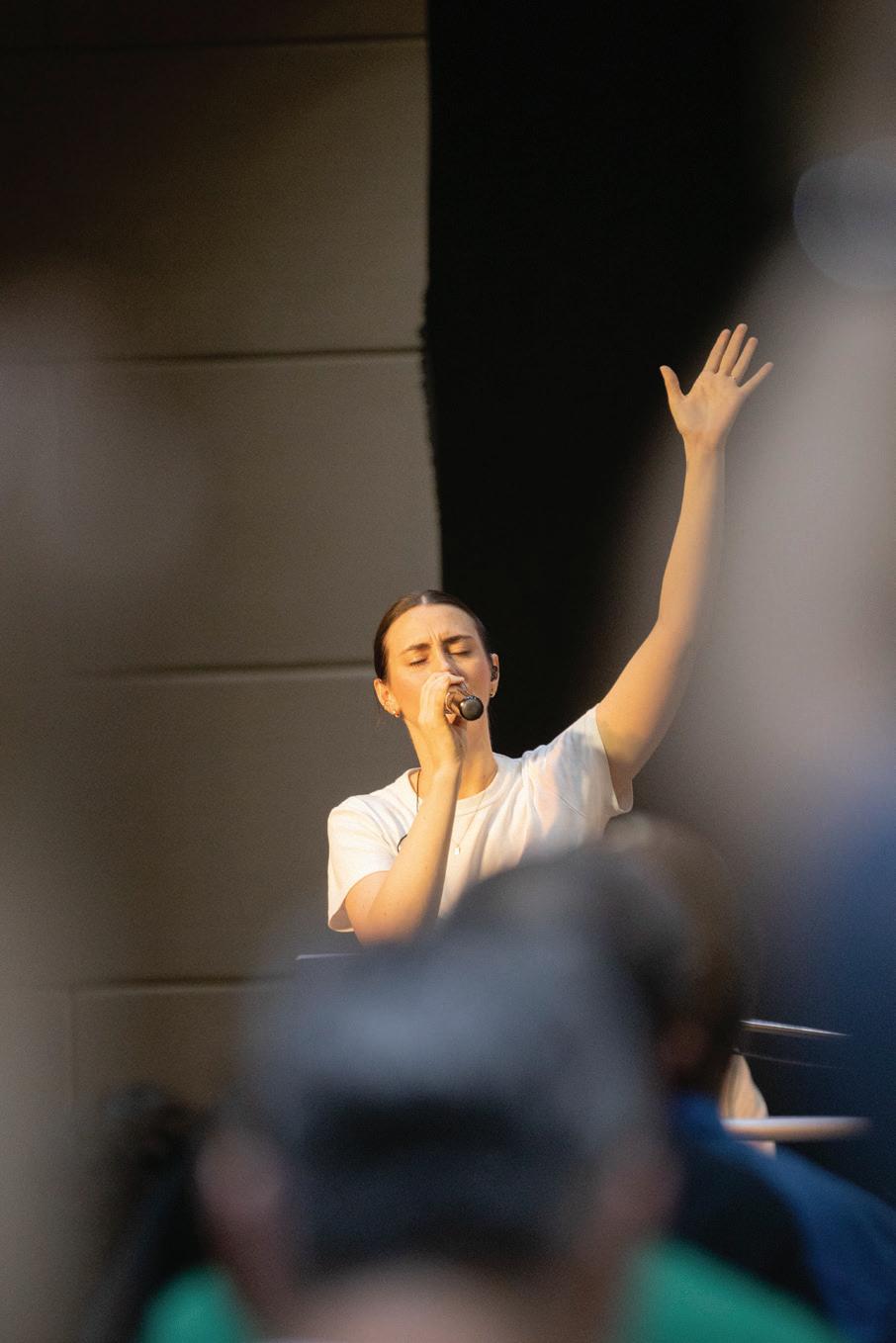

PHIL SHAND, CHURCH GROWTH DIRECTOR FOR VICTORIA, REPORTS ON THE LAUNCH OF CENTRAL CHURCH IN KILMORE.
The ACC is, and always has been, a church-planting movement. With a goal to plant 50 churches a year for the next ten years, every state is already on board.
Five churches have already been planted through ACC Victoria in 2024. One of these is in Kilmore, a town of 11,000 people just north of Melbourne, with only two other churches of any denomination.
Pastors Daniel & Fiona Sanders felt God leading them to plant a church there as a campus of Central Church Seymour. They began one year before the launch by running an Alpha course in a local cafe, which developed into a small group and eventually monthly pop-up gatherings. Ps Bob Menadue, who lives in the local area, was appointed as the location pastor and began searching for a venue suitable to hold services. As a former serviceman he enquired at the Kilmore RSL. The person who answered the phone knew Bob from Woodside Barracks in Adelaide 20 years before. A site visit was arranged for a week later where the person at the front desk was another person who had served with Bob, this time in Townsville almost 30 years before. Furthermore, the secretary of the RSL had only become a Christian six months earlier.
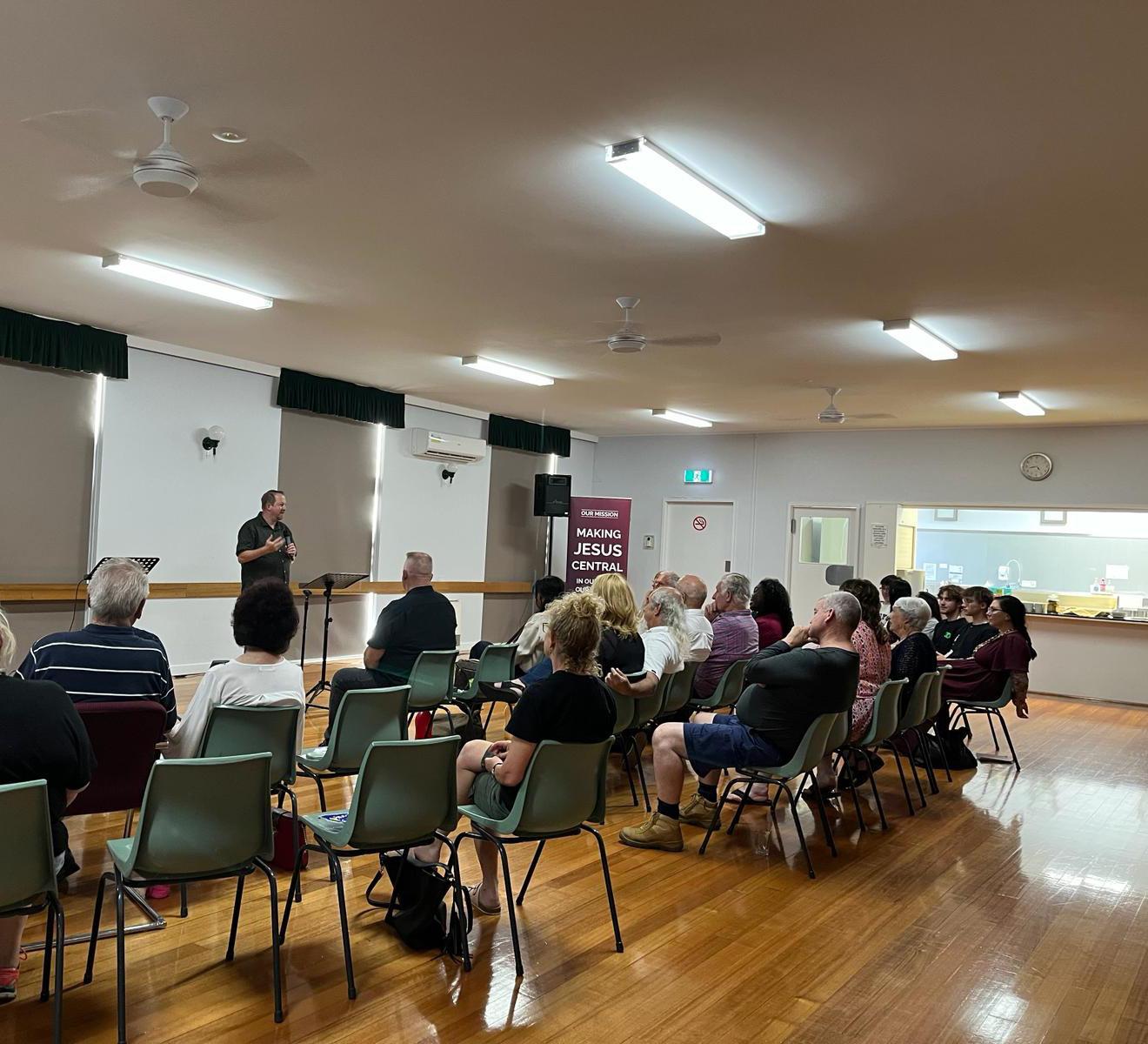
SENIOR PASTORS NEEDED FOR ACC CHURCHES
The following ACC churches are seeking senior leadership. Please contact the relevant ACC State Office if you are interested in finding out more information.
God used these friendships from decades earlier to give favour in hiring the venue for the new plant.
There were 35 people at the first service, mostly locals excited to see the new church established, and new people are being added each week. When we step out in faith and follow God's call to plant a church, God opens doors!
IF GOD IS CALLING YOU TO PLANT A NEW CHURCH, CONTACT YOUR ACC STATE CHURCH PLANTING REP
NEW SOUTH WALES:
> Contact the NSW+ACT State Office: admin@nswacc.org.au
QUEENSLAND:
Church: New Life Christian Church
Location: Hervey Bay, QLD
Church: Middlemount Community Church
Location: Middlemount, QLD
> Contact the QLD + NT State Office: admin@qldacc.org.au
SOUTH AUSTRALIA:
Church: Kimba Harvest Christian Centre
Location: Kimba, SA
> Contact the SA State Office: admin@saacc.org.au
WESTERN AUSTRALIA:
Church: Carnarvon Aboriginal Outreach
Location: Carnarvon (North WA)
Part Time/Bi-vocational role
> Contact the WA State Office: admin@accwa.org.au
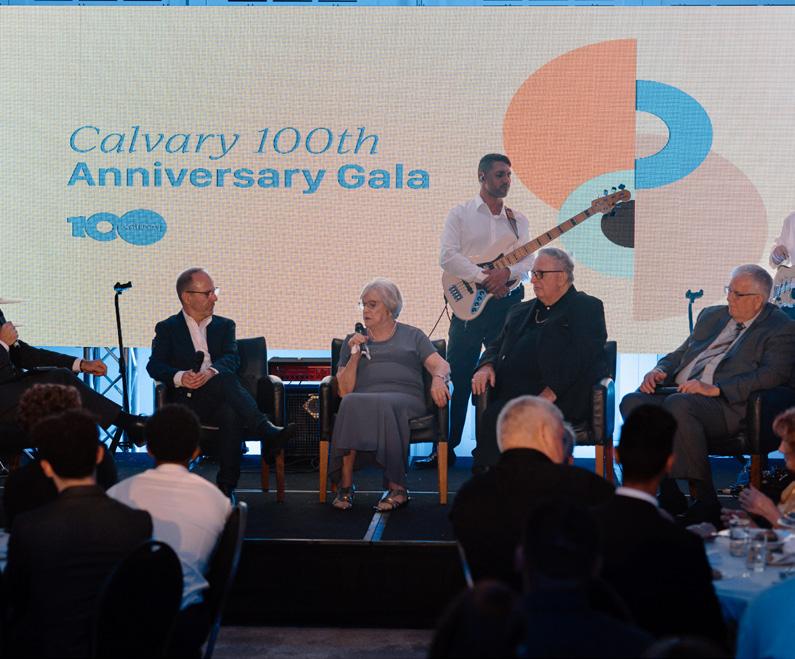
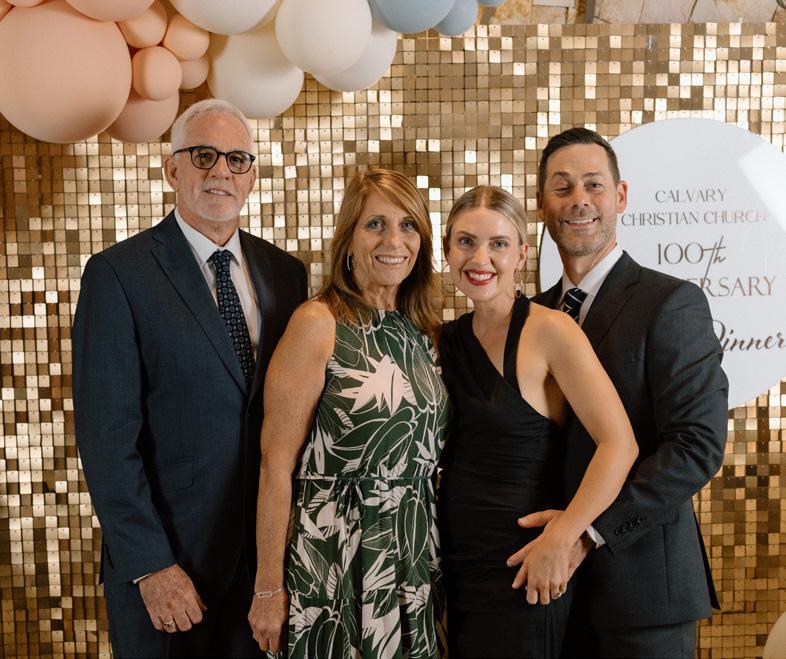

Calvary Christian Church celebrated a century of God’s faithfulness as the church reached the 100 year milestone in April. Close to 300 guests gathered in Townsville for the 100th Anniversary Gala, including past and present pastors, dedicated congregation members, and esteemed leaders who have each played a pivotal role in shaping Calvary’s history.
Senior Pastor, Dustan Bell, said: 'It was a joy to gather people from across the nation who have, over many decades, had a part to play in shaping Calvary’s story. It’s a great reminder that God uses many people over many years to establish a Church and further His purpose.'
Guests at the 100th Anniversary Gala dinner heard from Rivers Church Senior Pastor, Andre Olivier, and ACC National President, Wayne Alcorn. Previous Senior Pastors of Calvary were also interviewed, sharing stories and memories from their time in leadership.
This included specific thanks to Marie Cartledge, for the faith and legacy she and David invested in the 1970’s, leading the congregation to purchase the 92 acres of land we now enjoy and steward.
Among the attendees was Calvary Townsville Campus Pastor and ACC Northern Region leader, Renee Vucetic, who first attended the church as teen in 2002.
“I first attended Calvary Church after being enrolled as a student at Calvary Christian College. I said ‘yes’ to Jesus on the first Sunday night service I attended and have been coming back every Sunday ever since.”
She added, “Calvary Church has impacted so many over the last 100 years, and every person in the room had a story to share.”
“What was core to our DNA in the beginning, 100 years ago, are very much the things that shape our church today and into the future.”
Trace the origins of Calvary Christian Church and you’ll find a church founded on faith; not just for the immediate fulfillment of God's promises, but also to ensure an enduring legacy for future generations.
From its humble inception, when Charles Enticknap preached to a small group of people in a South Townsville home in Queensland, faith has been interwoven into the fabric of Calvary.
The church's expansion burgeoned with the conversion of Mrs. Howell, whose generous donation facilitated the procurement of a tent to accommodate the growing congregation. Over subsequent decades, this trajectory of growth persisted, then accelerated in 1970 with the appointment of David and Marie Cartledge as Senior Pastors.
Under their leadership, the church evolved into Calvary Temple Assembly of God, marking a significant chapter in its journey. In 1977, the Cartledges led the congregation in a monumental step of faith — purchasing 92 acres in Mt. Louisa, Townsville, for the construction of a permanent church home. With unwavering support from the congregation, the vision materialized, symbolizing a new era of growth and expansion for Calvary.
The year 1978 witnessed further milestones as Calvary inaugurated its new auditorium and established Rhema Bible College, now known as Calvary Leadership College, along with Calvary Christian College, a thriving institution that serves over 1,100 students today.
Under the leadership of James and Sam Macpherson, Calvary embarked on a new phase of growth, becoming a multi-site church with expansions into Sunshine Coast, Cairns, and beyond. The church's footprint continued to expand with campuses in Emerald, Blackwater, Yeppoon, and Rockhampton.
In 2018, Calvary ventured into South Africa, marking a significant international expansion under the leadership of Dustan and Sarah Bell. Their subsequent return to Australia in 2019 ushered in a new era of growth and innovation as the church pioneered a campus in Brisbane.
With each new endeavour, Calvary remains steadfast in its mission—to help more and more people know how much Jesus loves them. In keeping with its mission, in April 2024, Calvary launched its first campus in Papua New Guinea's capital, Port Moresby. Already, many hundreds of people call Calvary ‘home’ in Port Moresby and many have responded to Christ and commenced the Alpha course.
Calvary's vision for the future remains resolute: to help more people know Jesus, find community, and make a difference, in many locations around the world.
Calvary's vision for the future remains resolute: to be a place where many encounter Jesus, find belonging, and impact their world.
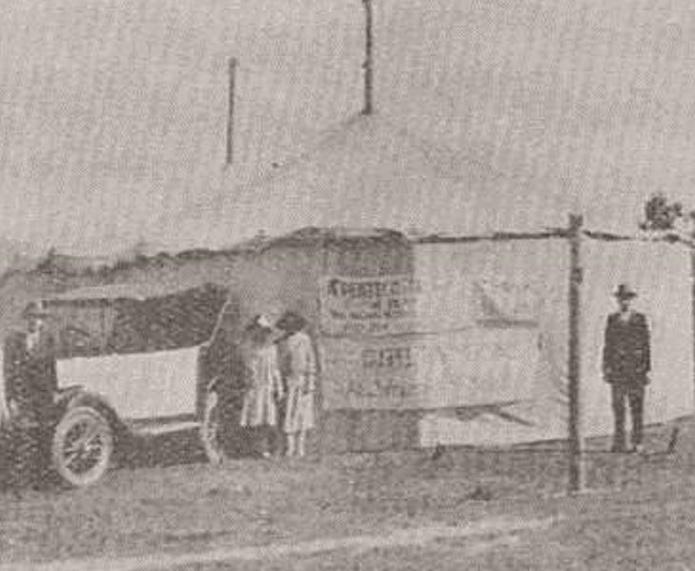
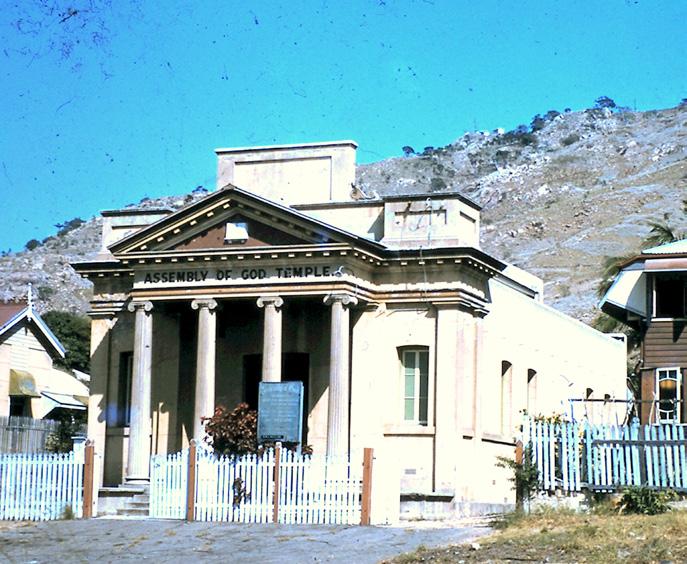
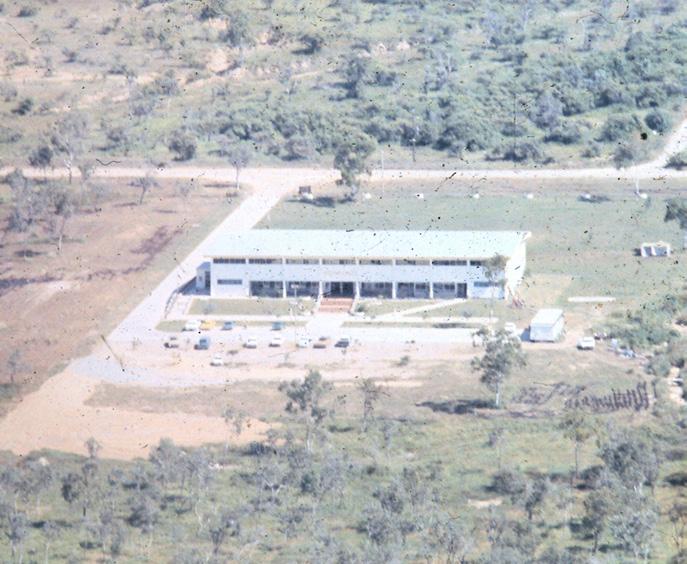
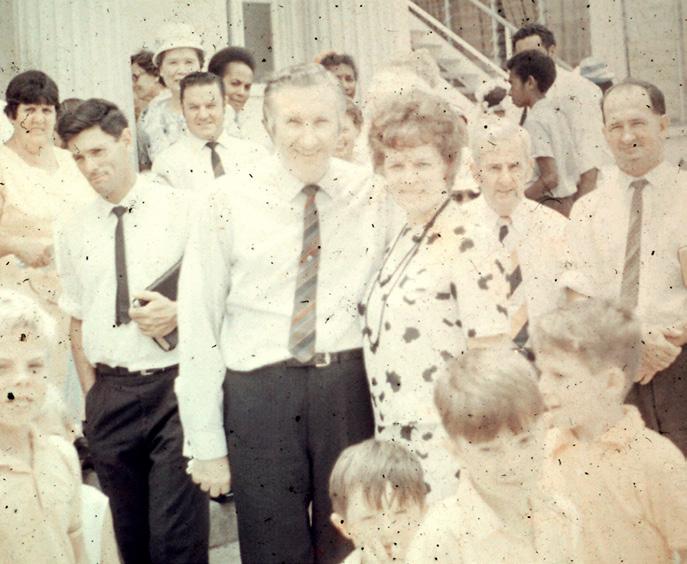
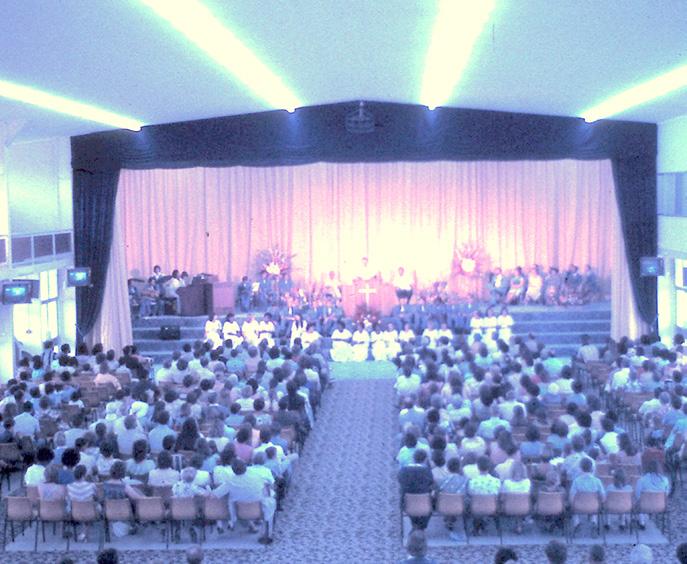
By Dustan Bell
II have enormous admiration for leaders who pioneer new churches. To start with nothing more than a vision, faith, and the promises of God, then birth a congregation into growth, strength, and permanence – that’s an incredible feat.
There’s no doubt our nation needs a growing number of new church pioneers – or founders. Considering census data, church planting must be a priority. That noted, in the coming decade we’ll also need strong succession leaders – men and women to take up the responsibility to lead the existing, multi-generational, legacy churches in the ACC movement.
This is the responsibility my wife, Sarah, and I were entrusted with upon appointment as Senior Pastors of Calvary in 2019. We’re not founders, we’re stewards. Calvary was here long before we arrived, and by God’s grace, will be here long after we’re gone. This requires a different approach to that of a founding pastor. Here are four lessons we’ve learned in leading a legacy church.
1. Learn the Significant Stories.
Biologically, DNA ancestry tests can trace your lineage up to ten generations back. Whether we choose to acknowledge it or not, we all carry DNA from our great, great, great grandparents. People you’ve never met, shape who you are, and in part, make you who you are.
This is also true of churches. Churches have DNA that is passed on from previous generations. There are certain distinctives that make Calvary who we are today. The DNA of calling, sacrifice, vision, faith and generational thinking – that DNA has been in the Calvary body for decades. In the context of Calvary, my role was not to invent the DNA, but rather to identify the positive DNA (values) and contextualise them for the current congregation.
Retelling the old stories is one of the simplest ways of inspiring the congregation as to the type of people we will be. For example, 'In 1924 Charles & William Enticknap slept on railway station platform when they arrived in Townsville – it wasn’t a lifestyle move! Calvary people have always been others focused, sacrificial etc.' Telling these stories strengthens the sense of 'family values' in the church.
2. Honour the Contribution of Predecessors.
As a succession pastor, you’re a fool if you imagine today’s fruit is due to the brilliance of the current leader! Generations prior bought the land, tilled the soil, and planted the seeds, that caused fruit to grow today. It’s only right to honour the contribution of predecessors.
The Apostle Paul wrote, 'I planted, Apollos watered, but God gave the increase' (1 Corinthians 3:6), revealing three truths about how churches grow. First, it’s not all God, there are people involved. Second, it’s not all one person, there are many people involved. Third, it’s not all at once – it takes time. Honouring our predecessors is an acknowledgement of these realities.


Where possible, use milestone celebrations to honour those who’ve made the church what it is today. It cultivates gratitude in the team, humility in the leader, and a sense of generational stewardship in the congregation. Everyone does better when we honour.
3. Leverage the Past to Inspire the Future.
We held our Calvary Team Retreat in the 48 hours prior to the 100th Anniversary Gala. At the retreat, we showed a documentary highlighting the sacrifices and faith steps of Calvary’s leaders and congregation, from 1924 to present. As we watched, many team were moved to tears, and simultaneously the faith in the room rose as we looked to our future.
In Hebrews 11-12, the author draws our attention back to the examples of faith in the past, to inspire faith in us to go forward. We look to Jesus, and we look to previous generations, not to idolise but to be inspired to run our race well. If that’s what they did then, what could we do now? It’s the same spirit of faith, brought to bear on new opportunities today.
4. Keep what Ought to be Kept; Change what Ought to be Changed.
Founders must decide what to start. Succession leaders must decide what to stop. Arrogance changes things simply to make a point (that they’re in charge now!) Timidity preserves things, for fear of offense. Succession leaders need the humility to keep what ought to be kept, and the courage to change what ought to be changed. Hold lightly to the programs, and firmly to the principles, so you can lead the church into a stronger, greater future.
Dustan Bell and his wife Sarah are the senior pastors of Calavary Christian Church. He is a member of the Qld+NT State Executive.
By Carl Wood
Masters, provide your slaves (employees and volunteers) with what is right and fair, because you know that you also have a Master in heaven. (Colossians 4:1)
Be shepherds of God’s flock under your care, serving as overseers- not because you must, but because you are willing, as God wants you to be; not greedy for money, but eager to serve; not lording it over those entrusted to you, but being examples to the flock. And when the Chief Shepherd appears you will receive the crown of glory that will never fade away. (1 Peter 5:2-4)
The Bible has a lot to say about how we should treat people with love and respect (even our enemies), but also the importance of treating our employees and volunteers justly and fairly without partiality. So how often do we stop and reflect on how effective we are at making our churches and ministries not only safe, but also great places to work. To be clear, we’re not just talking about being a great place to work because we get to partner with God on Kingdom outcomes, but because of how we treat, develop, and build up the lives of those who are working and serving under our leadership.
Are our workplaces operating in a safe way that allows our employees and volunteers to flourish, grow and lead to their God-given potential, and in turn, model leadership and Christian living to our local communities?
From 1 April 2023, Federal legislation mandated that all Australian employers must identify, manage and implement controls to either prevent or mitigate psychosocial hazards under the Work Health and Safety Act 2011 Cth (WHS Act). Each State / Territory has similarly introduced (or are currently introducing in the case of Victoria) new regulations under their respective
workplace health and safety legislation. Psychosocial hazards are any risks in the workplace that can cause physical or psychological harm, including harm to someone’s mental health, anxiety, depression, or posttraumatic stress disorder.
Both federal and state regulations place a positive obligation (i.e. you must take and document some action) on all Persons Conducting Business or Undertakings (which is a defined term, but will include any ministry, church, not for profit etc) to identify, manage and implement controls to either prevent and/or mitigate psychosocial hazards. Importantly, ‘workers’ has a broad definition and extends to include employees, volunteers, trainees, interns, contractors, or labour-hire workers.
Failing to act causing harm can result in extensive penalties (and in some cases imprisonment) for key governing officers – which for our churches and ministries will typically be senior, executive, or campus pastors/ elders/board/management committee members. If this is the requirements of all workplaces, how much more should we, as apprentices of Christ, be leading the way in how we protect our church staff and volunteers from psychosocial hazards.
This table attached provides a brief summary of common psychosocial hazards and some mitigating measures for consideration.
There are a number of great resources available to support you in this. We would recommend as a start using the QLD Work Safe Risk Assessment tool, which steps through the critical and key steps to identify, assess, and control any risks as well as prompt ongoing periods of review. This should then form a part of ongoing board conversations (at least annually) to document

and formally minute the positive steps you are taking in this important area. Another valuable and free resource is the People at Work website, which provides all that you need to conduct a more thorough process, including an employee survey - complete with template communication plans.
Hearing from and engaging with your teams is a key part of this process, particularly during the identification and control of risks. It is important to demonstrate your genuine care by seeking their honest input as to where our workplace (or even our own leadership) might have a current blind-spot, or area we can improve upon (be honest with yourself, as we all have areas of strengths, weaknesses, opportunities and threats). So ensure you provide a safe, open and non-defensive environment for feedback that shows them that you are taking your biblical and legislative mandate seriously to ensure you’re providing a safe and great place to work. We would therefore encourage you and your board also report back and communicate with your team as to what you’ve heard, what you’re doing, and the importance of ongoing
reviewing and checking in on this (at least annually). Your teams should be encouraged to keep each other and you accountable to any control measures you together agree to put in place.
I’m sure you will already be noticing that these mental health and well-being areas are impacting an increasing number of people in recent years. Our churches and ministries can and do provide great support, healing and hope for those impacted. Let’s together also be great role models of what a safe and great place to work looks like, always doing what is right and fair, and always guided by and aware of our 'Master in heaven'.
Common psychosocial hazards, a brief description and mitigating measures are listed on the safeworkaustralia website (with each hazard increasing the likelihood of harm when they are severe, prolonged or frequent)
Carl Wood holds qualifications in both Law and Accounting. He attends an ACC church and is a member of the ACC Review Group.

By Matt Boulton
Sadly, it’s seems impossible to switch on the radio or TV at the moment without being confronted with Australia’s alarming domestic and family violence crisis. It’s an issue that’s overwhelming our police, our courts, our prisons and now even our housing supply. As a former counsellor who once specialised in working with DFV perpetrators, I’m afraid I have to tell you that we shouldn’t be expecting the cavalry to arrive anytime soon.
Despite the federal government’s ambitious pledge to end domestic violence within one generation, this is a complex issue we won’t be able to fund our way out of. No, governments can’t end domestic violence. Police, courts and tougher laws can’t do it either. If community outrage, protests or keyboard warriors could fix it, you know we might be there by now.
Clearly, there is only one group of people who can bring an end to domestic violence, and that is the ones who are doing the violence. That’s why our communities can never hope to end domestic violence unless we are engaging those people, and encouraging them in a process of change. Anything else is, to some degree, just moving the sad problem around.
What might surprise you is that the vast majority of abusers know deep down that what they’re doing is wrong. Just like their partners, they didn’t set out to be in abusive relationships, and certainly wouldn’t say they were 'living the dream'. After all, there are no winners in any story of domestic violence
In counselling, I often found domestic abusers to be people full of shame, insecurity and self-hatred. They were also people who had a constant fear that they could be about to lose everything and everyone in the world that they cared about. It’s this that creates a sense of desperation, which we all know can lead to some truly tragic outcomes. However, if it’s intercepted and managed well, that desperation can also be the catalyst for some powerful life-changing decisions.
It probably shouldn’t surprise us that people whose lives are in such a downward spiral can often be so hungry for change (if they would only know where to look for it). To be honest, I really have to stand back and wonder how we’ve made the task of engaging with these people look so hard. Has the media convinced us that these kinds of “monsters” never want to change? Or have we been so overwhelmed by this national emergency that we have failed to see the opportunity and potential harvest we’re standing in?
Despite the common experience of desperation among abusers, I believe the broader community will always struggle to influence them, as long as the strengths and assets needed to do that are locked up in the local church. Where else do we find people who are so convinced about redemption; that deep conviction that people can change? Where else will we find people who can hate abusive behaviours, but still love abusers enough to get close to them, and to support them through that change?

I have a strong conviction that the Church should never wait for the government to fix what is our mandate to take care of. The Church does not need to wait for anyone’s permission to bind up the broken-hearted, set captives free, and release prisoners from darkness. It’s just what we do.
For over 20 years, the Circuit Breaker program has been equipping churches to engage with people in their communities who are dissatisfied with the way they conduct themselves when under the influence of anger. The course presents participants with new tools and strategies for managing anger and resolving conflicts respectfully; all within a safe and dignified group environment.
Circuit Breaker is certainly not the only effective program in the early-prevention space, but it’s become a favourite
with churches, because it can easily be delivered by “non-experts.” Course content is delivered through a series of videos and course notes, which allows volunteer facilitators to focus on people; keeping the small group discussions safe, supportive and productive.
Earlier this year, Circuit Breaker launched a fresh suite of engaging course videos, backed by digital delivery through smart-phone compatible web apps. Our hope is that this will allow churches in rural and remote areas the same opportunities to reach their local communities with hope, as they minister into this current crisis and beyond.
Matt Boulton is the founder of Circuit Breaker and program Director. www.circuitbreaker.au
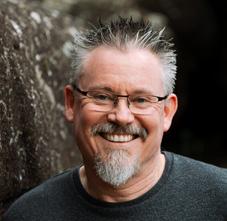

By Christie Blaikie
‘It’ll be the hardest thing you’ll ever do, but it will be good.' I still remember those words from our pastors nine years ago when we were about to launch Oasis Church. It’s hard to articulate what the journey of planting a church is like. There are no words to tell of the expectation that plagues you as you begin a new church.
By all comparisons, Ewen and I were quite a bit older than the average church planters. We were 36 and 42, had a small business, a mortgage on the family home and four kids; still, we felt completely challenged by all the thoughts, feelings and circumstances that came our way when we planted. Here’s a few lessons we learnt in the early days of planting.
1. The people you start with aren’t the people who you will build long term with. The early team of church planters are scaffolders. They are designed to hold you up while you build the structure. Once the structure can stand on its own, they tend to leave.
2. Be slow to call people leaders. If your church keeps growing, it’s also changing. If it’s changing, it means its requiring specific skill sets and increasing levels of integrity.
3. The people who attend your church plant are designed to challenge the gift. You’ll get some people who will sharpen your pastoral gift. If you can survive the early days, you can survive any day.
4. Be open to how God might provide. We discovered it takes at least 100 people in a service on a Sunday to pay for one pastor’s fulltime wage. The Holy Spirit gave Ewen a brilliant, niche business idea which has meant that for the last six years, we have again been bi-vocational as small business owners and church pastors.
5. The people you think will become your leaders often don’t. We found that the most skilled, charismatic people God sent us weren’t the ones who stepped up. It was the quiet, loyal types who stood up and carried weight.
6. Don't get discouraged at times by slow numerical growth. We learnt to count other things – breakthroughs, marriages turning corners, children committed to kid’s church, the amount of people serving, husbands coming back to the Lord, water baptisms, deliverance. Counting small breakthroughs sets you up to never take anything God does for granted.
7. Start by copying models of other churches until you figure out your own model. Finding vision and what we were passionate about took time to develop! Copying another model to begin with is great because it gets you off the ground. Deciphering the vision God put inside us happened as we were doing church and was influenced heavily by the context of our church.
8. Have more preachers than just yourselves. From the beginning, we were open to having regular preachers from the church who embodied the culture. Having others preach frees up time for pastors to be in the community and meeting people.
9. Relationship, relationship, relationship. You’ll need people older than you, further down the road than you, and people who absolutely love you to keep you encouraged. Find mentors and be a part of something bigger than yourself.
10. Develop a rhythm of work, play and rest from the start. Church planting is the hardest work and if it’s all consuming, its unhealthy. Pastoring is work that is never completed, and you’ll need things in your life that you can complete to help with a sense of achievement.
Christie Blaike and her husband Ewen are the senior pastors of Oasis Church in Perth. Christie is a member of the Western Australian State Executive.
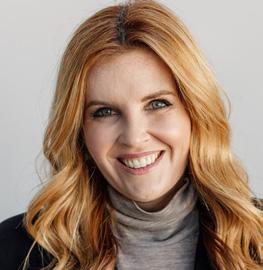
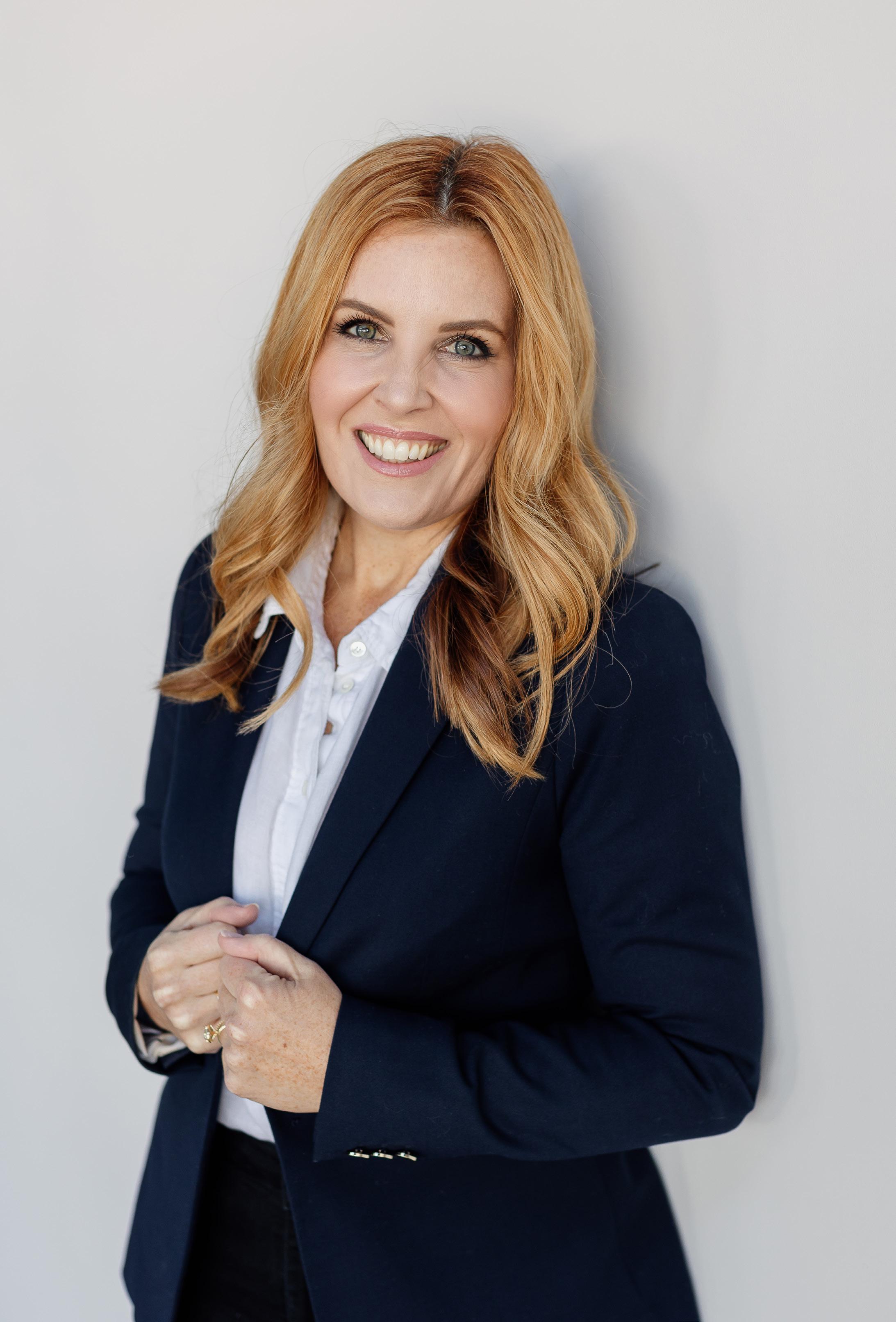
ACC EMAG SPECIAL FEATURE


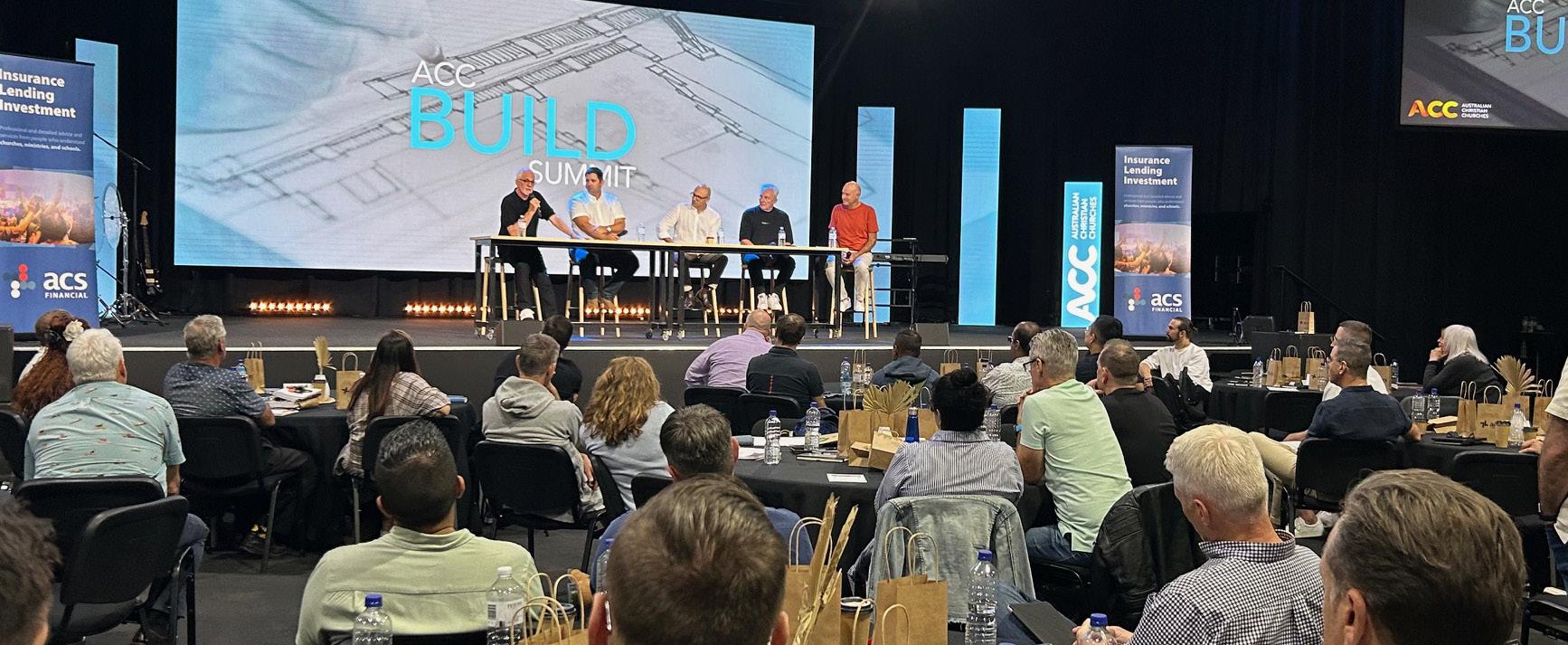
'The acquisition of property and development of ministry facilities represents one of the most significant challenges and greatest opportunities for a local church,' said ACC National President, Wayne Alcorn.
The ACC Build Summit, held 8–9 April, provided a forum for senior pastors and business managers to gather and discuss the practicalities of church buildings and facilities.
'We are committed to helping local churches build flourishing congregations for the future,' stated Wayne Alcorn. 'We wanted to open the conversation and provide inspiration, practical information and helpful resources on leading local churches in and through the acquisition and development of ministry facilities.'
Hosted at Calvary Christian Church on the Sunshine Coast and in partnership with ACS Financial, speakers at the Summit included Andre Olivier (Rivers Church, South Africa), Wayne Alcorn (Hope Centre), Richard Kobakian (Lifehouse Church) and Matt Pappas (Calvary Christian Church).
'What started as an idea to get a small group of leaders together in a room to discuss all things related to church property and facilities, proved to be so much more than we expected,' said Wayne Alcorn. 'It built our faith, capacity, knowledge, and network, so we can build a church that impacts a community and strengthens generations.'
KEY SESSIONS FROM THE ACC BUILD SUMMIT HAVE BEEN ADAPTED AND MADE AVAILABLE FOR ALL ACC PASTORS IN THIS SPECIAL EMAG FEATURE.

By Wayne Alcorn
The Church is not a building; it is the body of Christ working together to build the Kingdom of God. Having said that, church buildings are important, as local churches do ministry more effectively when they operate from a building.
In 2023, the ACC planted 49 churches. Our faith goal over the next decade is to plant 500 local churches. This is exciting, yet there is a potential problem on the horizon. We are in an era where ‘cancel culture’ is a dominant factor; and there is a massive shift in government policy amidst negative publicity about the Church.
Many churches meet in public buildings or schools, and already there are stories of churches being refused hire facilities. I have a deep concern that if we don’t get on the front foot with the ownership of church buildings today, we could find hundreds of churches that have nowhere to meet in the future.
This is why I am starting this conversation. My mission is to encourage as many churches as possible to acquire their own properties. Allow me to give you four key reasons why.
When you own a building or facility, you are no longer at the mercy of a landowner.
The church I pastor today was originally Glad Tidings Tabernacle, pioneered in 1930 by William Booth Clibborn, the grandson of William Booth. They started in a tent and in the midst of the Depression, bought a building in Fortitude Valley in downtown Brisbane. It had been a great building back in the 1930s, yet when we took on the leadership in 2000, it was looking tired. There was graffiti outside, the carpet was threadbare and there were holes in the walls. I remember the phone call I received in the middle of the night in 2004, telling me that the church was on fire. For two years afterwards, we had to hire facilities to meet for church. There was a time when we had six different venues in different parts of the inner city over nine weeks. I think our people got travel sick, and all the moving around meant we ended up losing some people.
There comes a point when you realise you need a home.
A church is a family; a place to call home. It’s where people say yes to Jesus, where they get married, dedicate babies and raise their children, and where they farewell loved ones. There is so much more to owning a church facility than just somewhere to meet on a Sunday. A church building gives people stability; it gives them a home.
2. A Church Building Makes A Huge Statement To The Community.
A pastor who planted a church in a new area told me that the common question he was asked by community members was, ‘Are you sticking around? Or are you going to move on like the other lot?’
When we own our buildings, we’re making a strong statement. We can’t build a community on fly-in, flyout churches. If we own it or have a significant stake in the ground through leasehold arrangements, we’re sending a clear message, We’re here to stay!
One of my favourite verses is in Matthew where Jesus explains what God’s Kingdom is really like.
‘“The kingdom of heaven is like a mustard seed, which a man took and planted in his field. Though it is the smallest of all seeds, yet when it grows, it is the largest of garden plants and becomes a tree, so that the birds come and perch in its branches.” (Matthew 13:31-32 NIV)
We know that everything in the Kingdom starts small, but seldom stays small. We’re meant to become significant and substantial. That tiny mustard seed, that Jesus spoke about, eventually became such a prominent feature on the landscape that the local birds would go to the tree to receive food and shelter from storms. This is a picture of how the Church is established as a place to serve the surrounding community.
When Lyn and I took on the leadership of Glad Tidings, God gave me a very clear mandate to establish five campuses – from the city centre, to the north, south, east and west– from which to reach the community in the greater Brisbane area.
In this time, we’ve had all kinds of miracles in purchasing land and facilities. The small seeds in the ground have now grown to become shrubs and finally like fruitful trees – places to look after those in the community.
Having a church building means people can come to an established location, not just on Sundays, but throughout the week.
This pattern of the early church was set in Acts chapter 2, which tells how they met in the temple and in houses. Having a facility means you can run small groups, mothers’ groups, various training programs and youth gatherings – and not just Sunday services.
Reaching the next generation is a key focus of our mission. One of the important reasons we need quality facilities right now, is creating exceptional spaces for kids and youth ministry.
The expectations and requirements for safer churches are higher than in previous decades. If you put yourself in the shoes of unchurched parents turning up at rented facilities, the sight of temporary barricades won’t fill you with a lot of confidence that your child is safe.
A permanent facility enables us to establish safe and creative spaces that are secure and welcoming, especially for the next generations.
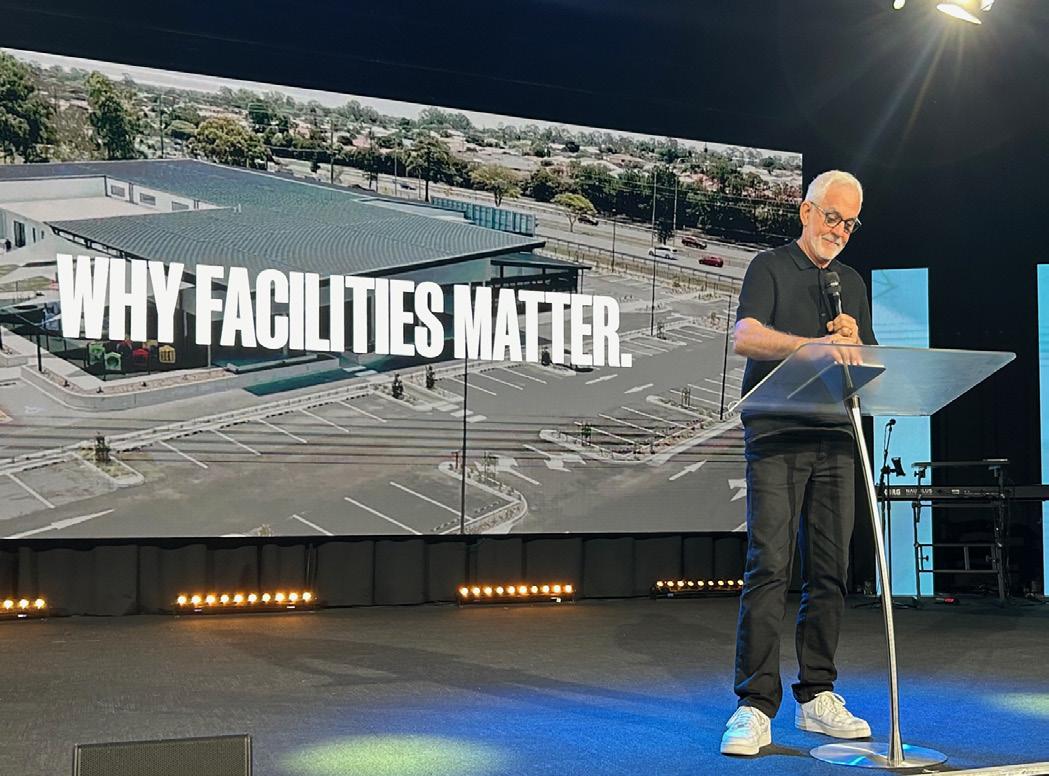

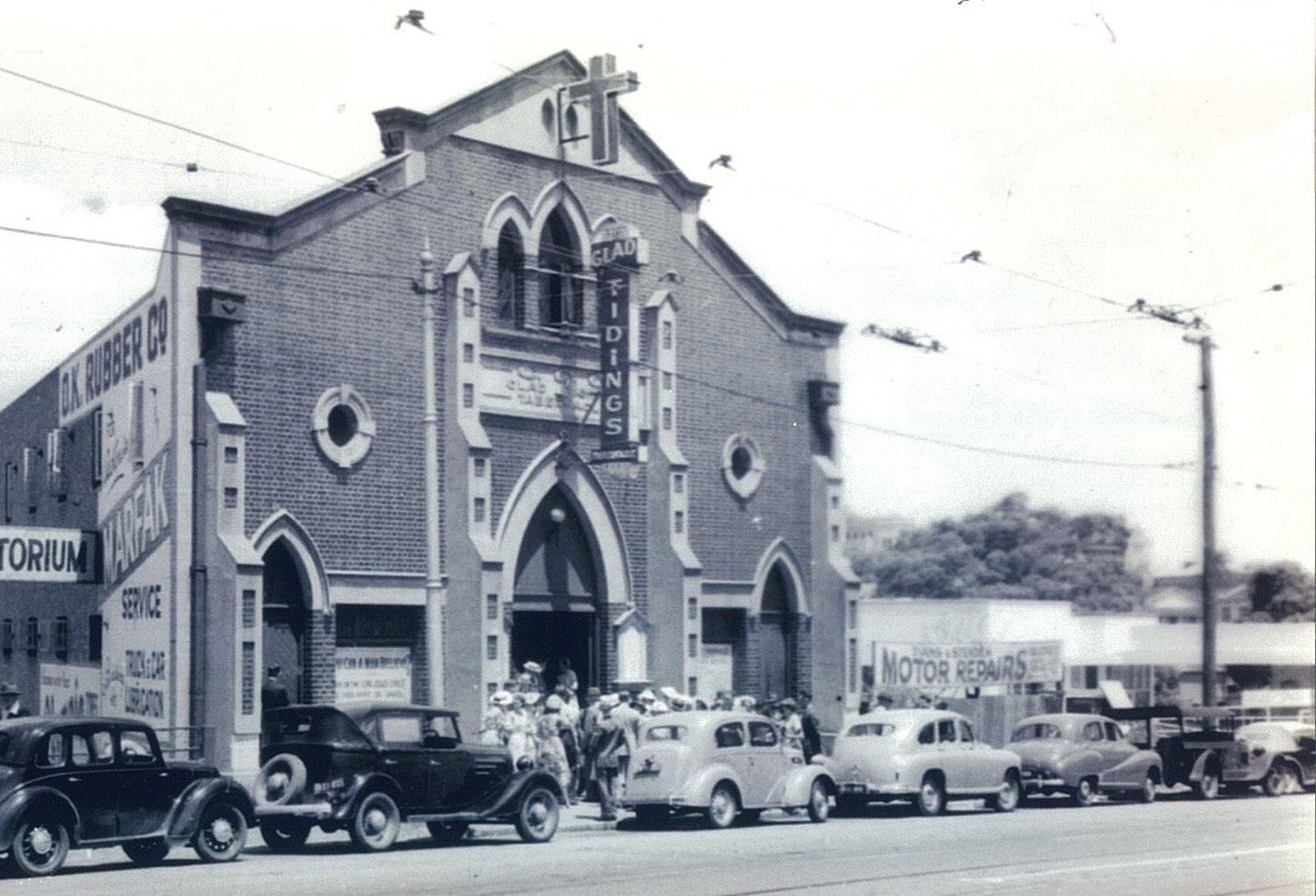
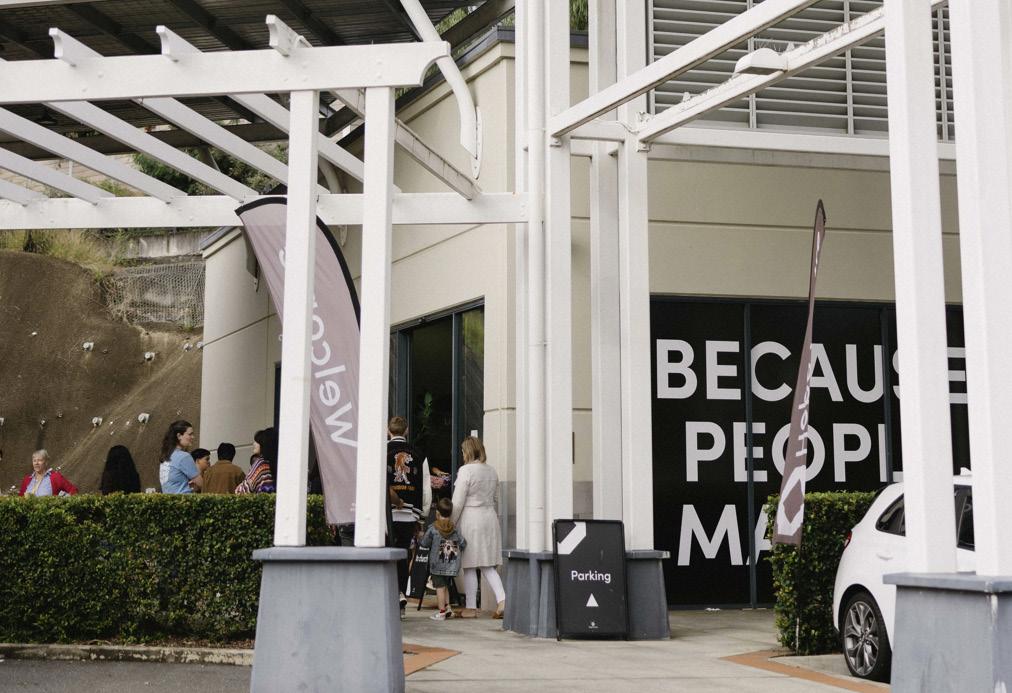
4. Church Facilities Deliver Generational Blessing.
Pastoring a church with a 94-year-old history, I often remind our Hope Centre staff, ‘We’ve been left the legacy so it’s our responsibility to leave one.’ My desire is to give the next generation assets, not mortgages.
‘A good person leaves an inheritance for their children’s children’ (Proverbs 13:22. NIV)
You can look at this verse in terms of leadership: a good leader leaves an inheritance for the future generations. I don’t want the next generation of leaders to spend years paying for my vision. It’s my responsibility to give them a platform to build something that they can build to the glory of God.
Did you know King David was the only king of Israel that is recorded to have had the joy of seeing his successor take the throne? Every other king died before the next monarch took over. Before David handed the throne to Solomon, he was intentional.
'David said, “My son Solomon is young and inexperienced, and the house to be built for the LORD should be of great magnificence and fame and splendour. Therefore I will make preparations for it.” So David made extensive preparations before his death.' (1 Chronicles 22:5 NIV)
What are you making preparation for at this time?
The lesson of the mustard seed shows there is always potential for greater vision and expansion. So let’s continue to put a stake in the ground by building places of stability and credibility, with facilities that enhance our mission and leave a legacy for the generations to come.
Wayne Alcorn and his wife Lyn are the senior pastors of Hope Centre. Wayne is the ACC National President.
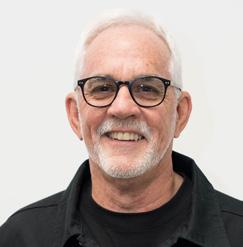
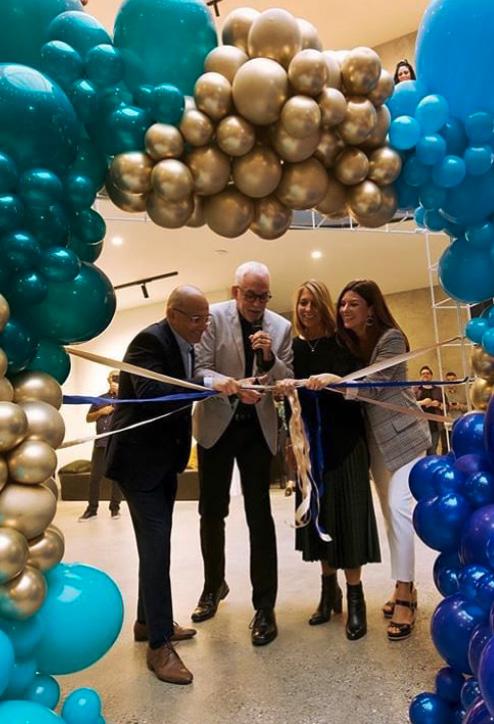
By Richard Kobakian
Senior Pastors Richard & Helen Kobakian founded LifeHouse in Melbourne in 2002, and opened their new church building in 2020. Since then, they have expanded to other locations, including opening new churches in Germany and Poland. Richard Kobakian shares some lessons from their journey.
We started our church with a small group of 17 people who met in our lounge room. Over 14 years, we met in different hired venues. We always did the best with what we had. When we were meeting in a school, we would get there at 5.30am to clean the area and put out fresh flowers. I think our church appreciated the fact that we tried. If you’re in a rented facility, people notice when you’re trying to make it a pleasant experience.
We didn’t have a separate kid’s or parents’ room, but we tried to make it nice by putting up curtains, with a small table and a couple of chairs. When we were hiring the school, we offered to install air conditioning; and they readily agreed and to offset it against the rent. It was a win for all of us. They were blessed by the air conditioning and we didn’t pay rent for three years.
We weren’t waiting to get into a building before we gave our best. I think that’s a spirit that we need to carry. Today we’ve got a magnificent new facility, but our heart hasn’t changed.
1. Be the Master of Creating the Need.
Most people become comfortable with where they’re at. So, for instance, if you wanted to start a second service, don’t announce it without telling yoru congregation the reason why. Share how you have 100 people in your overflow room, and other logistical problems. Most people can’t see the problem with the venue you’re meeting in, because they’re not the ones setting it up. So don’t play it down, play it up.
2. Help People See the Vision.
You need to help your people see vision and you can start by showing photos and images. Even though we were still meeting in a school hall, our people could see where we were going to be one day. That’s when they committed to be part of the journey.
3. Excellent Communication.
Before we took up a building offering, we had to learn how to communicate the vision. We printed a magazine-type booklet, with prophecies and artist-impressions of the facilities. If you’re wanting to raise money, you have to put the effort in. Likewise, if you want people to be generous, be generous. One of the things we did was host a gathering with a full three-course dinner, completely free of charge. All they had to do was register. That is where we shared the vision openly with those who were interested to be on the journey with us. Making it free showed the heart of the church.
Our church literally doubled within six months of moving into our own building. Interestingly, it brought out the parents who had had safety concerns with the hired facilities.
I want to encourage those who don’t have a church building yet. When we were meeting in those school halls, this was the best season to build morale and to gather people around a cause. Honestly, the greatest vision offerings we’ve ever had was when we didn’t own a building. Don’t see a hired facility as an obstacle – use it as an opportunity to build morale, and get your people dreaming about the vision.
Richard Kobakian and his wife Helen are the senior pastors of LifeHouse Church.

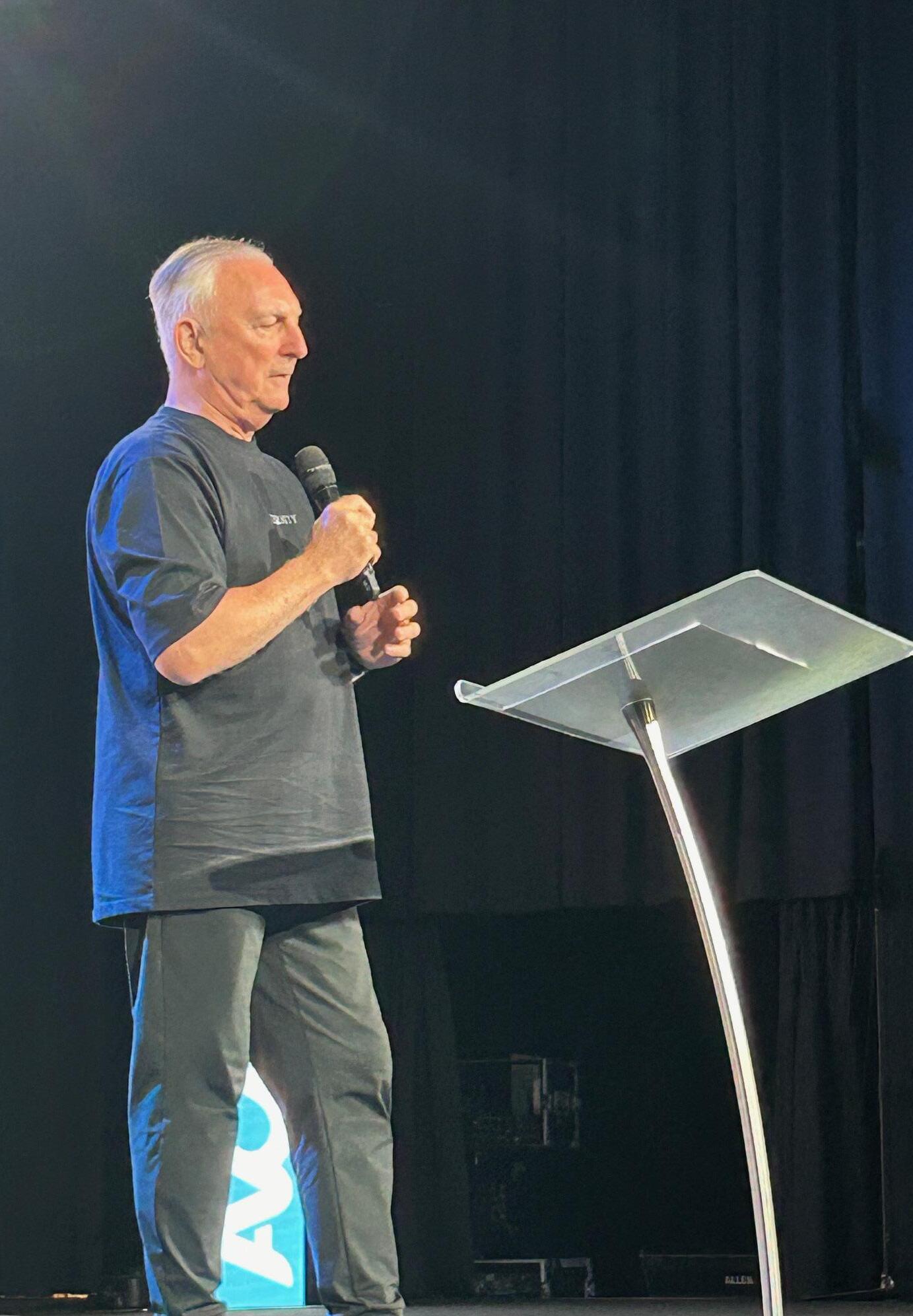
By André Olivier
Have you considered that people can come to your church and be inspired by everything they see, before they even hear you speak? We send a message in everything we do, from the moment people arrive at our church.
'When the queen of Sheba saw all the wisdom of Solomon and the palace he had built, the food on his table, the seating of his officials, the attending servants in their robes, his cupbearers, and the burnt offerings he made at the temple of the Lord, she was overwhelmed. She said to the king, “The report I heard in my own country about your achievements and your wisdom is true. But I did not believe these things until I came and saw with my own eyes. Indeed, not even half was told me; in wisdom and wealth you have far exceeded the report I heard. How happy your people must be!"' (1 Kings 10:4-8 NIV)
Our churches aren’t built to impress queens or prominent people. Our buildings are designed to make our people happy, and they reflect who we are. If your buildings are religious in nature, you will attract more religious people. If they are trendy, they will attract younger people.
Our Culture is reflected in our buildings
In the early days, we started painting the walls in grey, dark colours (I called it ‘crematorium grey’). Some people came in and said it looked demonic. I then decided that we’d paint our building orange! We also bought stock footage of images of young, fashionable, trendy, racially diverse people to put on our posters and noticeboards. And guess what? Young people started coming to our church.
Here are 12 things that we need in our buildings, that reflect who we are and the culture of our church.
Excellence is important because it honours God and it blesses people. It’s not about being too intense. We have raised the bar because people are generally laid back and don’t like to put in effort. Excellence is the standard we have set in our church so that people can come away from mediocrity and aim for excellence in their own lives.
I think creativity is important because we serve the God of creativity. Creativity keeps things fresh and keeps us from becoming dull and boring. Our preaching should be creative and so should our buildings and our décor. Our creative team makes notes on what we see in secular productions. For instance, we saw how Jennifer Lopez rose out of the stage in this long dress, and we used that idea in our production on Resurrection Sunday; Jesus emerged on the stage in a robe that got longer as He went higher. It was a simple idea that had a massive impact.
We should express hospitality through our buildings, conveying that we are about serving people. Everything we do must be intentional, not accidental. A large resource centre can generate finance but it doesn’t need to be the focal point. What people really need to feel when they come into your building is not that ‘we’re here to sell you something’ but that ‘we’re here to serve you’. There is nothing wrong with being astute with finances as a self-sustaining church, but the
primary goal must be hospitality. Everything from the food to the merchandise must be about serving people, and send a message that we value and care for you.
A sense of community is tied to hospitality. We’ve tried to create a place where people can stay in our buildings and not rush off anywhere else. This is where they can meet other Christians and build relationships. We’ve intentionally got long tables to seat about 15 or 20 people so no one sits alone. We’ve built the atmosphere so people can socialise, eat, and even listen to live music with some of the up-andcoming musicians in our church.
5.
What do you feel when you walk into a building? Do you feel intimidated? Do you feel comfortable? Do you feel inspired? Our buildings should reflect a good atmosphere. I think how a church building makes you feel is very important. It should lift your spirit. People should be proud of their church building when they get there. I think there should be a sense of Wow, is this a church? People need to feel something when they come into your building, so it’s important to focus on the atmosphere.
6. INSPIRATIONAL
Our buildings should be inspirational, just like our preaching should be inspirational. It’s not just about being functional. When people walk in, it should, surprise them, and open them up to the unexpected and to change. This sets the expectation to be inspired.
7. CLEANLINESS
This should be a given, but buildings should reflect cleanliness. In Africa, things can be dirty and grubby so we make a concerted effort to keep our facility clean. We clean the >
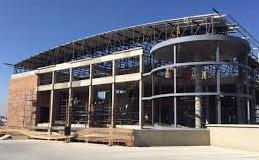
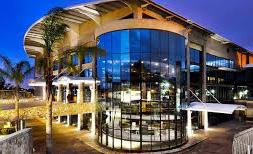
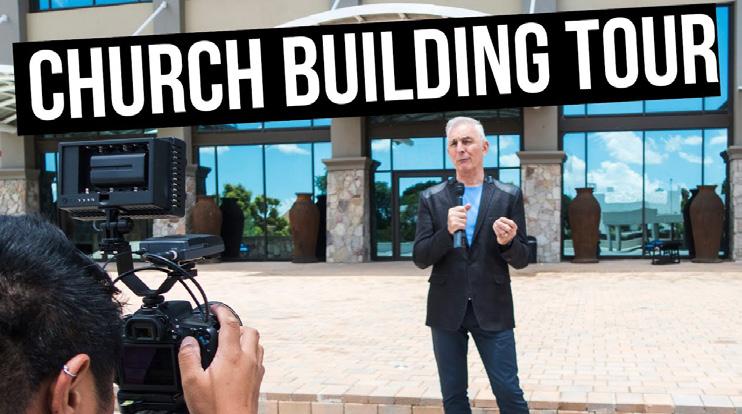
toilets between every service; we wipe the handrails and seats down with sanitiser. Cleanliness gives people a sense of grace and feeling valued so we should put effort and expense so our facilities reflect that.
A church building should reflect comfort. This means our facilities shouldn’t just be limited to local government requirements. For instance, if people have to queue for toilets, it is not ideal. We looked beyond government specifications, and put in more toilets than we needed, so someone can always find a toilet when it they need it in our building. Incidently, we also added flush masters so it helps with maintaining the cleanliness. When it comes to comfort, also consider the chairs. There is a saying that the mind can only absorb as much as the bottom can endure. Don’t spend the minimum on seating because your people are sitting most of the time while you are preaching so ensure they have good, comfortable chairs.
What I’ve noticed is that sometimes churches get the ratios wrong. Ratios send a psychological message to the people. Instead of you watch what we do, the message is we do it together. For instance, what is the size of your platform in relation to the size of your church? If your platform is huge, and your building is small, it says everything happens up here, not down there. This creates a spectator mentality.
Also be mindful of having platforms that are too high because then you tend to look down on people rather than engaging with them. Getting the ratios right makes people feel valued. Consider the ratios when you’re building parents’ rooms. You may need more than one if you attract many young families to your church. Also make sure you have wonderful facilities in the parents’ rooms, with quality television screens, feeding cubicles and comfortable chairs.
When designing your building, consider the different functions and find a way to meet all the needs. How much space do you have for prayer lines or to call people forward for altar calls? If you’ve designed it specifically for prayer, it may not always work well with communication because there will be huge gaps. Some churches have an aisle down the centre – it can be very hard to preach into an empty space. Ideally, the bulk of the congregation should be in the middle. On the other hand, if you’re using the venue for a wedding, you’ll need an aisle so will need to be able to move the chairs.
When it comes to communication, make it easy for your congregation to see. Don’t limit the size of your screens because of the cost. Screens enable people seated near the back to connect with the preacher. When we built our new building, we wanted the people in the back
of the balcony to feel they were right next to the stage. Rather buy one massive screen than three small ones. You can always add more later when you can afford them. Likewise, be mindful of the configuration of chairs, especially on a flat floor, so that if someone tall sits in front, those behind are craning their necks throughout the service.
Don’t view your kids ministry as a babysitting service. It’s not a sideline or an additional extra. We see it as a leadership device and training centre so we put a lot of money into our KidZone. This is how we touch a community but meeting the whole family’s needs. When people arrive at our Sandton location, they immediately see the Kids signage, with a beautiful playground outside. I don’t mind that they don’t notice the auditorium first because it says we’re sending an important message.
Our church buildings express who we are, and the culture we are building. Let’s never underestimate the value of that.
Andre Olivier and his wife Wilma are the senior pastors of Rivers Church, South Africa.

most churches only build a new building or upgrade once every 10 or 15 years... we do it every week!
Whether you’re about to embark on a new project or are already underway and need some help, our team can help you design, install and commission your dream worship space.
We want to know your vision and serve your church. From 50 seats to 5000 and beyond, we’re here to deal with all the details, so you can focus on advancing the Gospel, reaching your community, and changing lives.
Great worship services and spaces equipped with hassle-free audio, video, and lighting technology... that’s what it’s all about!
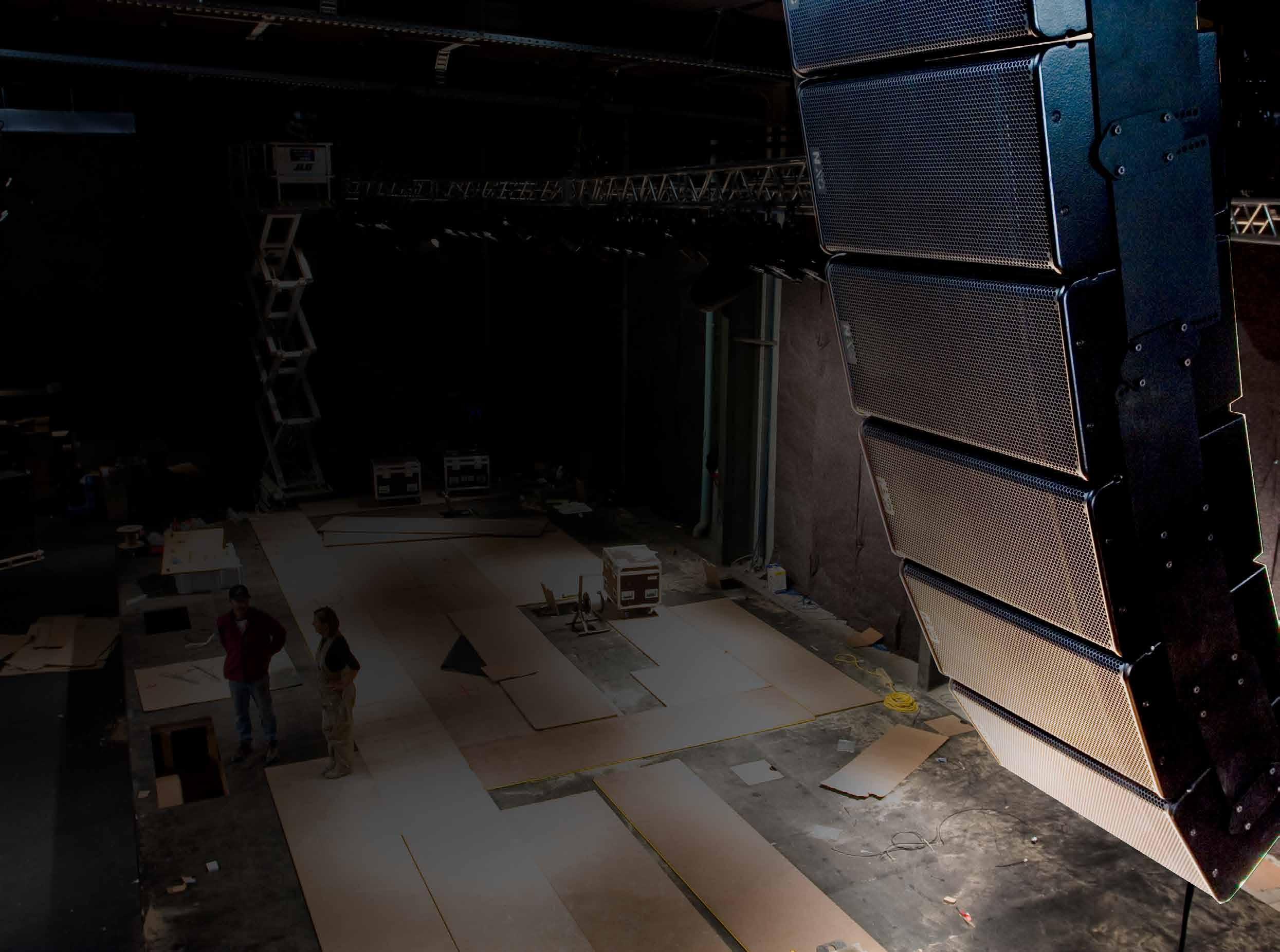


audio. video. lighting.

info@ffp.com.au (02) 4954 4771 ffp.com.au





By Matt Pappas
When it comes to developing the right ministry facilities for your church, let me be up-front – there is no silver bullet. Over the last seven years in Calvary, we’ve had a diverse range of experiences as we’ve undertaken building projects in seven of our campuses. Each project has been unique and required a combination of vision, faith, due diligence, and hard work to bring to fruition. Though the outcomes haven’t all been due to our own effort – we’ve witnessed miracles and experienced God's favour, resulting in the successful completion of multiple millions of dollars’ worth of development to ministry facilities. Through this process, we have gained valuable insights, including lessons learned from mistakes made along the way.
Here are some insights we’ve learnt, which may help your church as you move forward in your own journey of building developments. We trust the principles that have guided our process, the practical steps we’ve taken, and practical keys that have worked in our context, can guide your church in seeing break through and success in this area of church life.
One of the first questions I’m often asked is how we present and communicate future building projects to our congregation. Typically, we take 5 to 6 weeks each year from mid-May to end June to share what projects are ahead, why they matter, how they will make a difference in fulfilling our vision as a church. This exercise ought not be underestimated – finance follows vision (and trust – more below).
During this period, we also gather those in our church who have the gift of giving (Romans 12:8) to encourage and inspire them toward generosity.
This season culminates in our annual ‘Expansion Offering’ which takes place in mid to late June, when our campuses bring a special offering and make faith pledges for the coming 12-month period.
It is said that progress moves at the speed of trust. We put a high value on being transparent with our congregation with regards to how our Board and Finance Committee steward finance given, to ensure the intent of the giver is honoured. Every investor wants to know that funds are well managed – why would this be any different for people investing in Kingdom projects?
We also regularly communicate to our congregation good reports on projects delivered, which illustrates to our people (particularly those new to the church) that with regards building programs and special offerings, we deliver on what we said we would do.
In our experience, communication of results coupled with transparency around processes, has built a momentum of trust across our campuses.
When it comes to our building projects, essentially, we work on the ratio of thirds. A third of floor space for the auditorium, a third for kids ministry, and a third for foyer spaces. Traditionally, churches used a >
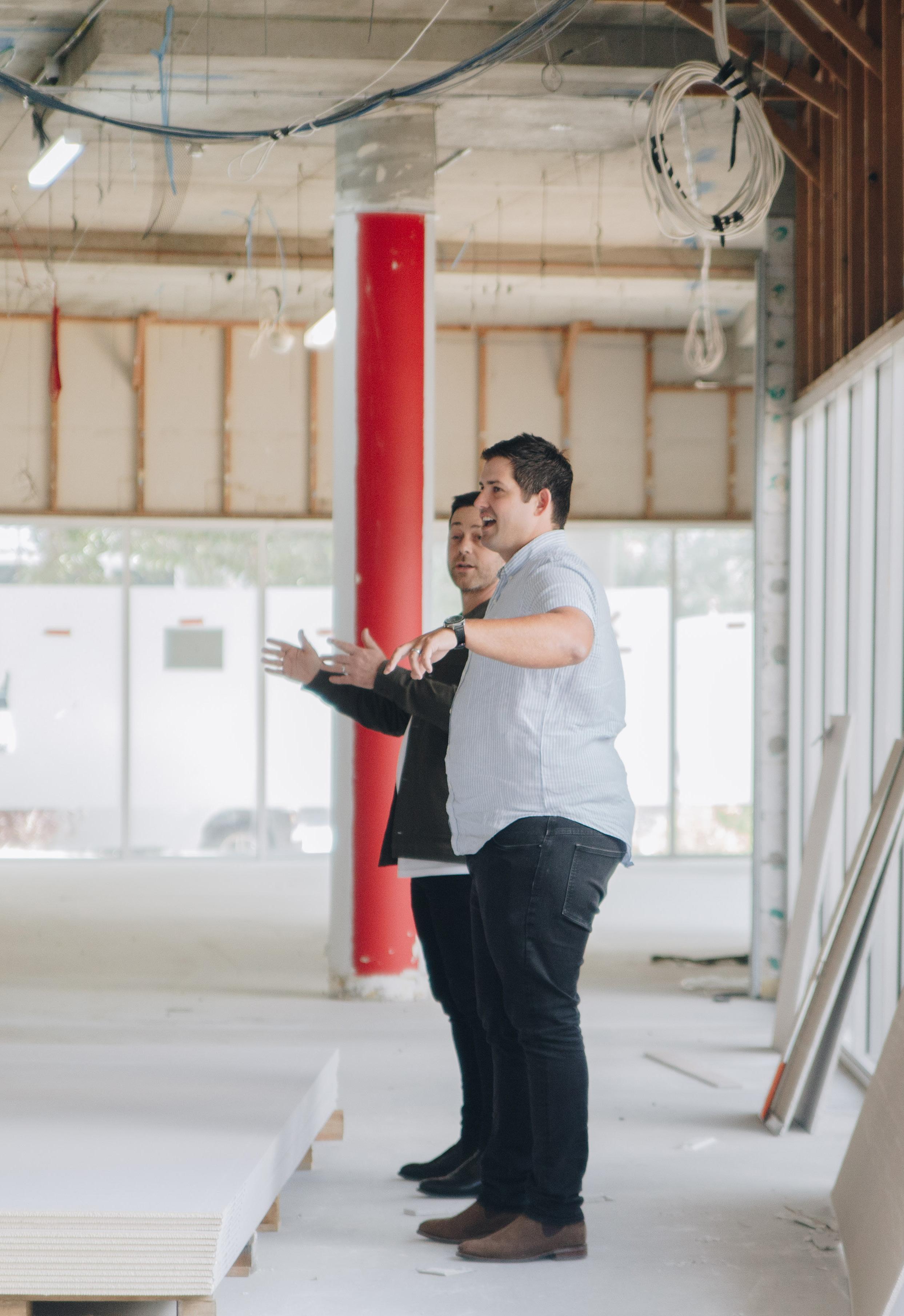
ratio of 80/20 (i.e. 80% for the auditorium and 20% for the foyer and kids spaces.)
Our Brisbane campus is our most recent building. It is 700m2 facility; with a 200-seat auditorium. This allows us to turn services over with less pressure on infrastructure, toilets, parking etc based on Council capacity limits. Multiple services in this venue allows us to build a strong base as a campus, positioning us with a strength of congregation to take our next steps in the future.
It is crucial to have a clear understanding of your key needs and desired location. When we were exploring the idea of establishing a new campus in Brisbane, we focused on the inner west area near QUT and UQ University campuses. This location aligns with our church's mission. Initially, we considered local halls and a cinema for our gatherings, but rising rental costs made this option unsustainable. After conducting financial modelling with our Finance Committee, we opted for a lease and fit-out arrangement, based on a specific opportunity that came up off market. Our church then signed a six-year (three + three) lease agreement for the space. We completed the certification, finalised the plans, and finished the fit-out within six months.
Deciding to hire, lease or purchase is one of the key factors you’ll be faced with as you review facility options. Our Cairns campus began by hiring a school hall, before moving to a cinema bump in and out scenario, because of Covid changes. Due to the high cost of weekly cinema hire and the limitations of that model, we felt we needed to own our own building. We found a 5,000 m2 facility we were able to purchase at very favourable price, due to
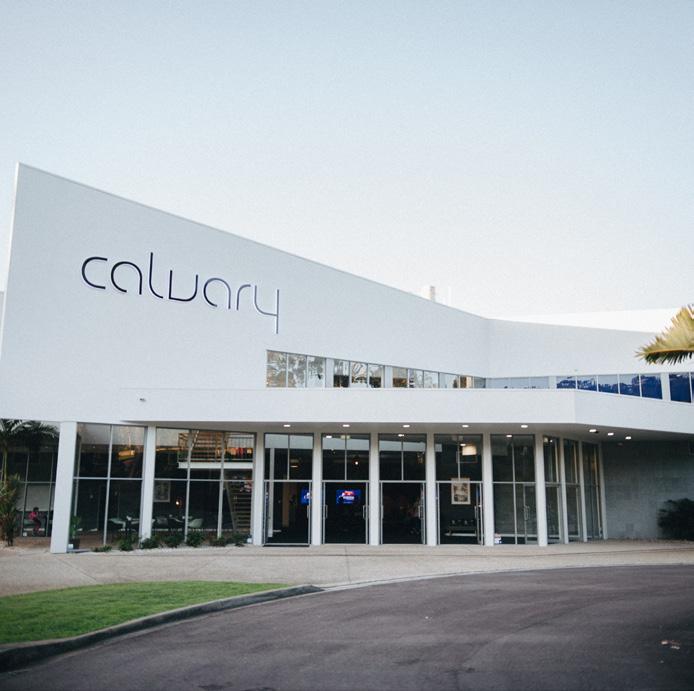
a church member’s relationship with the company that owned the facility and the company’s desire to divest assets during Covid. After approval of plans and town planning, we completed an extensive fit out of the facility. Since moving into this building, our Cairns campus has doubled in average weekly attendance.
There will always be obstacles with any building project, but the key is to keep thinking strategically. The cost of construction may continue to keep rising and can increase beyond budget allowance, but by being resourceful and creative you can always find ways to save finance. We have often used a Design & Construct style build, using the expertise of our own staff or congregation members to reduce costs, increase efficiency, pivot on adjustments, and maintain close control of project management.
'Faith is the substance of things hoped for, the evidence of things not seen' (Hebrews 11:1).
This has been the testimony of Calvary’s journey so far. We have faith God will provide and He will bless the work of our hands. Our part is due diligence, stewardship, prayer and persistence in problem solving. As we’ve done this, we’ve seen God release generosity in people, so that vision can turn into reality.
Matt Pappas is an ACC pastor and the General Manager of Calvary Christian Church.

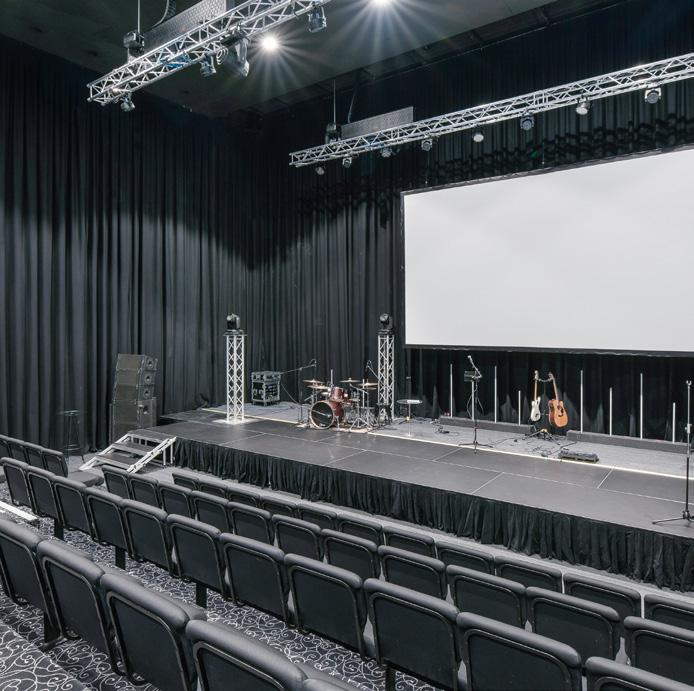
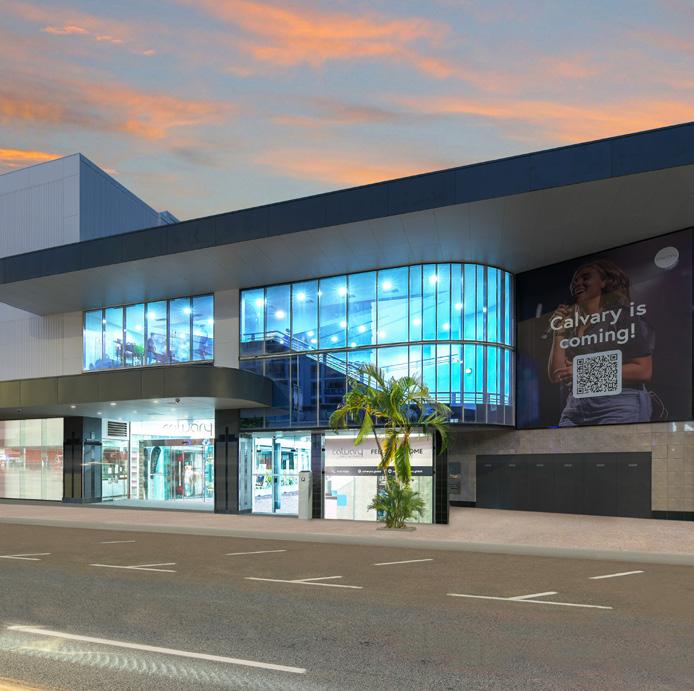
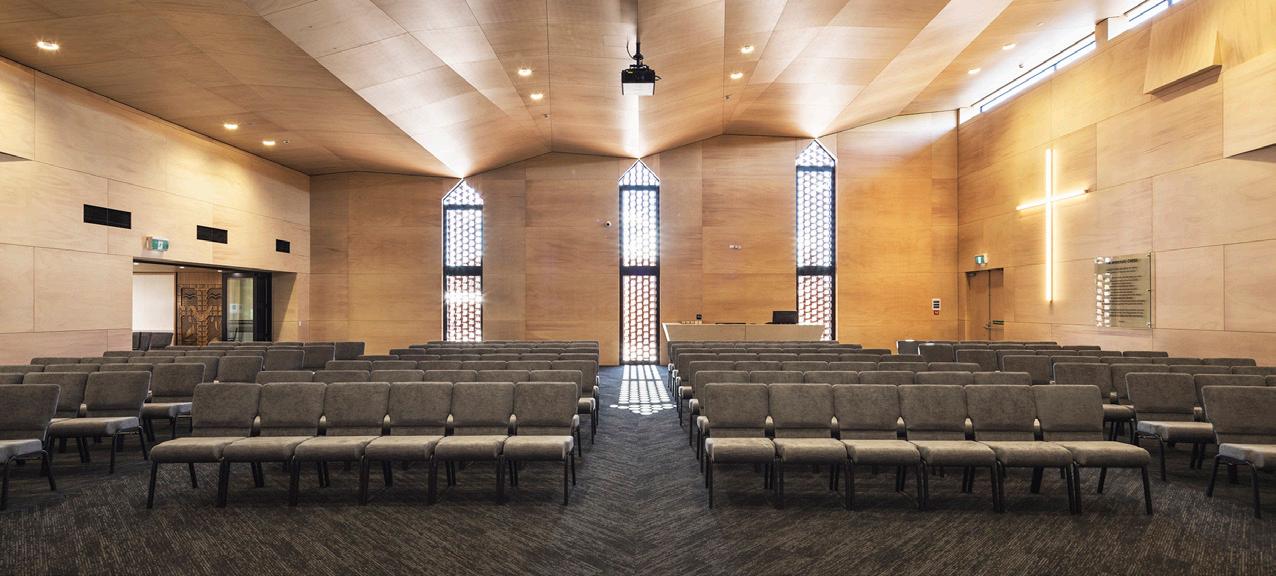
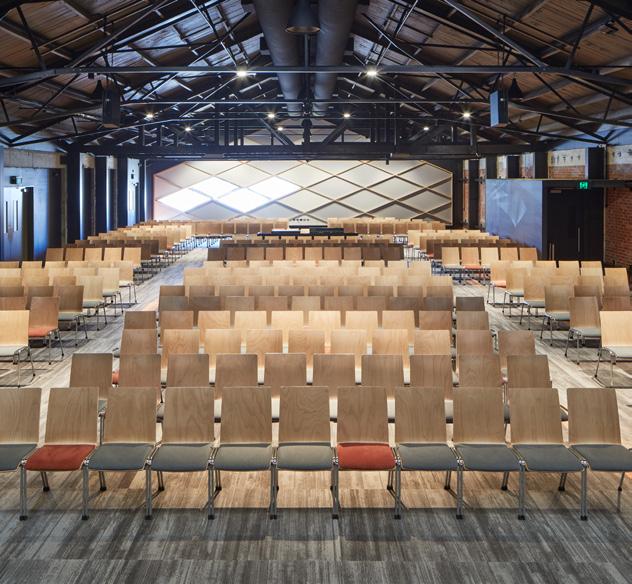
Whether a heartfelt talk between friends, or a spiritual dialogue within your congregation;
The most important conversations take place sitting down.


Seating is crucial in completing a worship space—it fosters connection, turning it into a true community hub where your congregation can gather comfortably to share, listen, and grow together.
As a social enterprise rooted in Christian ministry, Alloyfold understands what is needed to create an inspiring environment for your congregation.
We customise our seats to fit seamlessly into your space, offering various upholstery and configuration options tailored to your needs. Whether your style is traditional or modern, our versatile range will enhance and compliment your interior while providing vital comfort and support.
Alloyfold is an Australian registered social enterprise. 100% of our profits are invested into our ministry. Learn more about the charitable work we do at pathway.org.nz alloyfold.com.au | sales@alloyfold.com | 1 800 287 025 Contact us:
Whether you are updating or building new, we will help you find the best seating solution for your church.
Start by viewing our range on our website by clicking below:



By Andy Kirk
We are constantly looking at ways to reach and engage with the families of our community. One thing that has been proven over time is that when you have intentional and purposeful spaces for Kids, then the church grows. Some years ago, when Futures Church in Adelaide renovated their Paradise church, they brought the Kids facilities to the front of the church, attached to the foyer and added a Kids Playground. Alice McInnes, the Futures Families Pastor, said that the impact of that change was felt immediately, and they saw a 30% growth in their Kids ministry.
This value on Kids via having intentional spaces is common in many churches in the USA. Gateway
Church in Dallas and Life.Church in Oklahoma are exceptional. You may think you can't achieve this at that level, but the pastors at these churches will tell you there was always a high emphasis on kids and families.
The 2021 International Network of Children’s Ministry Survey of ‘Top reasons you attend your church’, found Kids Ministry was second after the grounding Theology of a church.
In Queensland, Calvary Christian Church opened a brand new Kids Ministry building at their Townsville campus in early 2024. In the following three months, the children’s attendance has grown by 50% and their combined services are now the largest they have ever been. The growth has been
contributed entirely to the focus on the Kids Ministry and facilities.
In South Australia, Revival City Church is opening a newly renovated building specifically for Kids. Senior Pastor David Hall said 'We are so excited as we get ready to open the facility as we believe reaching families is the key to changing our city and building legacy.'
The key underlying factor from Futures Church, Calvary and Revival City Church is not just about building the space but the desire is to reach more families. This heart is reflected in the building of a focussed space. So start with the heart decision, do what you can do ,and dream big for what could possibly be and start praying and believing into this.

If you aren't in a position to build your purpose-built kids space right now, there are things you can do. Excellence is not perfection but rather ‘doing the best with
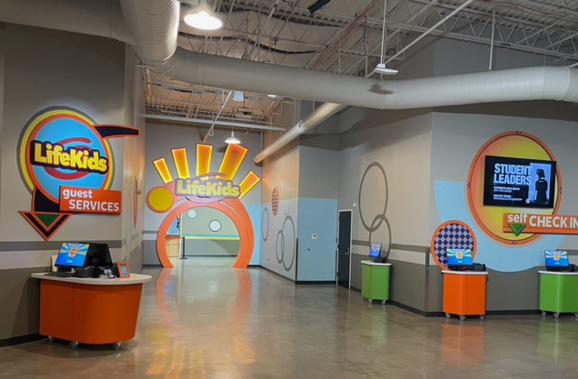
• Friendly Volunteers: Ensure that volunteers at the check-in desk are friendly and approachable, creating a warm and inviting atmosphere for children and parents.
• Engaging Signage: Use colorful and fun signage to clearly indicate the check-in area, making it easily identifiable and appealing to children.
• Interactive Elements: Include interactive elements like touchscreen check-in kiosks or playful decorations that can engage children as they arrive.
• Comfortable Waiting Area: Provide comfortable seating for parents and children, with small activities or toys to keep kids occupied while waiting.
• Welcome Packets: Offer welcome packets or small gifts for firsttime visitors, which might include information about the kids ministry, a small toy, or a craft kit.

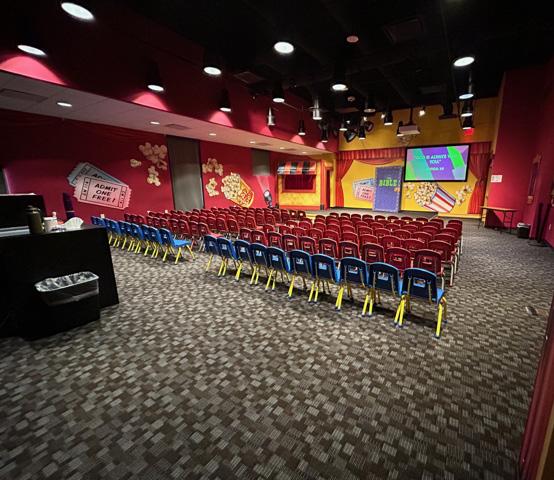
easy access.
only essential materials and toys accessible to avoid clutter.
• Organised Storage: Utilize storage solutions like labeled bins, shelves, and cubbies to keep toys, craft supplies, and materials organized and easy to find.
• Consistent Layout: Maintain a consistent layout for the space so children and parents know what to expect and can easily navigate the area.
• Repair and Replace: Regularly inspect and promptly repair or replace broken toys, furniture, and equipment to maintain a safe and tidy environment.
Andy Kirk is the national director of ACC Kids. Visit acckids.org.au for Kids Ministry & Leadership podcasts, training resources or to contact Andy Kirk for ministry engagement.
Play Zone: Set up a play area with a variety of age-appropriate toys and games, ensuring it is safe and inviting for children.
• Storytelling Zone: Create a cozy corner for storytelling with comfortable seating, a small bookshelf, and soft lighting to encourage reading and quiet time.
• Learning Zone: Establish a learning area with educational materials, whiteboards, and interactive learning tools for lessons and group activities.
• Quiet Zone: Provide a quiet area where children can go if they need a break from the activity, equipped with soft mats, pillows, and calming decorations to create a peaceful environment. This is especially important for this kids with additional needs.

By Helen Moore
Did you know that post-Covid and recent flood events, building costs have risen by a minimum of 30-40%? In some areas of the country, even more! If you haven't recently updated your building valuations, you could be significantly underinsured when building, investing in, or extending church properties. With over 30 years of experience in protecting church property, we know it's crucial to be aware of the following common misconceptions about asset valuation.
¨ Equating Purchase Price with Replacement Cost
It's easy to think the purchase price of your property equals its insurance replacement value. However, market value differs from replacement cost, which includes building materials, labour, debris removal, and various fees (like architects and surveyors). Rebuilding can be much costlier than market value, so your insurance should reflect accurate replacement costs.
Although your church's needs may evolve, insurance should cover the cost of rebuilding the existing structure. Insurers can accommodate updates, but the declared value must reflect the cost to rebuild as it stands. Insurance covers replacement, not upgrades, making accurate valuation crucial.
¨ Assuming Volunteer Assistance Churches often rely on donated materials and volunteer labour, reducing initial construction costs. However, such support might be unavailable after considerable damage. Insurers typically hire commercial builders whose costs need to be covered by insurance. Therefore, declared values should reflect professional rebuild costs, not reduced volunteer-based costs.
Under-declaring property values to save on premiums can lead to

major shortfalls in claim settlements. This practice can result in the insurer applying the Average Clause, leading to proportionate claim payments. A partial settlement may result in your church bearing the rest of the financial burden.
¨ Estimating Without Expertise
Accurately estimating replacement values requires expertise. Churches often underestimate the complexities and costs involved. Hiring commercial builders, quantity surveyors, or professional valuers to determine accurate replacement values is a smart investment, ensuring proper coverage and preventing underinsurance.
¨ Neglecting Contents Valuation
Just like buildings, contents should be insured on a 'new for old' basis. Churches often forget to update contents values, leading to underinsurance. Keeping a detailed, updated inventory ensures declared values reflect actual replacement costs, maximising insurance benefits during claims.
Helen Moore is the Insurance Senior Consultant at ACS Financial.ACS Financial exists to support and protect church assets and ministry, allowing you to focus on building, investing, and taking ground for the Kingdom. For further information, call 1800 646 777.


We are passionate about helping you raise the next generation of disciples. Giving people in your church access to a Spirit-led and Christ-centred education is a key part of this.
Australia’s public universities were founded with a very secular mindset, and this has shaped our nation’s values up until today. This is why we are so passionate about providing a high-quality education that combines academic excellence with Christian values. It’s time to re-establish faith and values into all areas of learning.
Our heart is to partner with you in raising up not only the next generation of pastors and ministry leaders but also teachers, counsellors, care workers, chaplains, and business leaders to make an impact for Jesus in their spaces and communities.
We would love your help in spreading the word, especially with those thinking about university options or gaining further qualifications.
For more information on how to communicate this within your local church, please click below.
Learn more here
By Paul Bartlett
When Australians were asked in a McCrindle Research survey, what sort of spaces/places they want more of in their communities, the answer’s were interesting – and a little challenging.
# 1 - more parks and recreational spaces.
# 3 - more community centres
# 10 - more off-leash dog parks
In last place, sadly, was church buildings. Rather than bad news however, this can be used to our advantage. We are seeing across our movement – from Planetshaker’s to our regional churches – church buildings that double as Community Centres.
Renovating your church building into a Community hub – or better still buy an existing Community Centre - doesn’t just make good sense financially through rental return. It turns your church into a centre for evangelism!
Imagine having the people you’ve been trying to lead to Christ come to your church on the six other days of the week. Think Creatively about your space
Many churches now have a café in their buildings. For many, this can be too costly, but don’t worry – the answer is to think creatively about how you can use the current spaces you have.
Lighthouse Church Wollongong use one of their rooms as an “Art Space”. A place for local artists to display their latest creations.
Macquarie Life Church on the NSW Central Coast uses their carpark each night for those in their community sleeping rough in their cars. It provides a safe place to stay with use of their toilets, showers and kitchen facilities.
Many churches allow community groups like Lyons Club, Scouts or business network groups to use their facilities.
When it comes to buying a building for your church, my advice is buy a Community Centre and have church in it! Not the other way round.
Your State Community Engagement leader would be more than happy to help connect you to churches who are doing multipurpose buildings well.
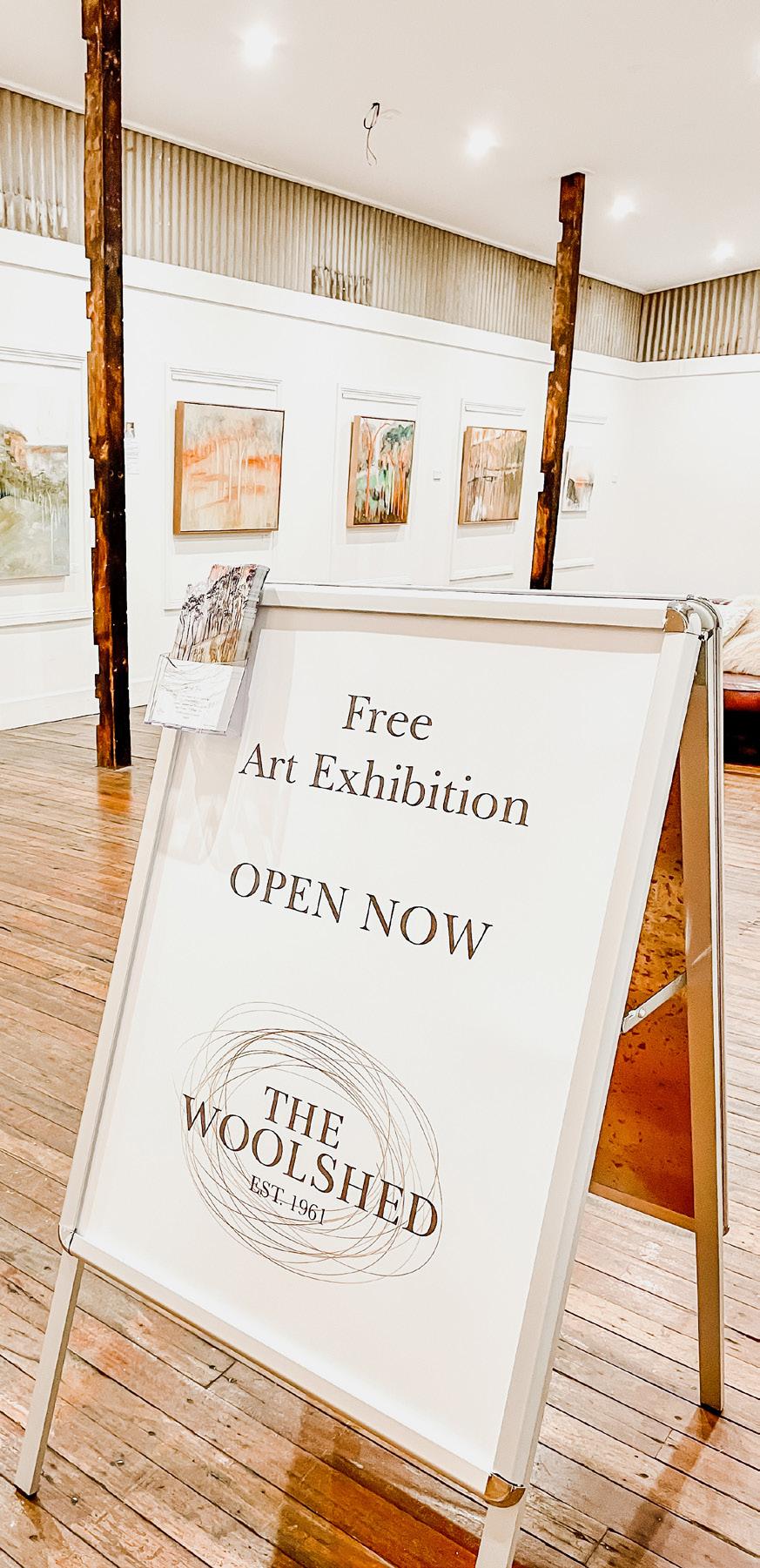
Paul Bartlett is the national leader of ACC Community Engagement and the NSW+ACT State President.


Tell us about the current church building you are in right now?
JOHN: The Dandenong-based church we have been in since 2008 was the result of someone saying to me “If the banks aren’t giving you a loan, have you tried ACS Financial?”
This led to a phone call with the lending team at ACS Financial and from there they worked with us to secure the property and guided us to be debt free in ten years.
Your church owns this amazing property, and you are debt-free, what are your next steps?
JOHN: We are in the process of stepping into the extended vision of what God gave us to become a multi-national congregation.
Not long ago, God gave us a vision to buy a big block of land and we found something that was beyond our financial affordability on a main junction in Melbourne. After several brokers told us we don’t have the borrowing capacity, we prayed and then approached ACS Financial for a second time. They helped us secure the land… again!
They also ensured we had an affordable mortgage so we wouldn’t be financially burdened.
What would you say to a pastor considering buying a building or land?
JOHN: I would say something a missionary once told me many years ago: 'Visionaries invest in buildings. Long-term visionaries invest in land.'
If a pastor wants to buy a block of land or a building to extend their vision for their church, I recommend they set a time to speak with ACS Financial.
This is because banks don’t understand religious organisations. Banks don’t understand the vision of a pastor. ACS Financial negotiates on behalf of you with the banks. I would 100% recommend you go to them first.
With God all things are possible, be encouraged!

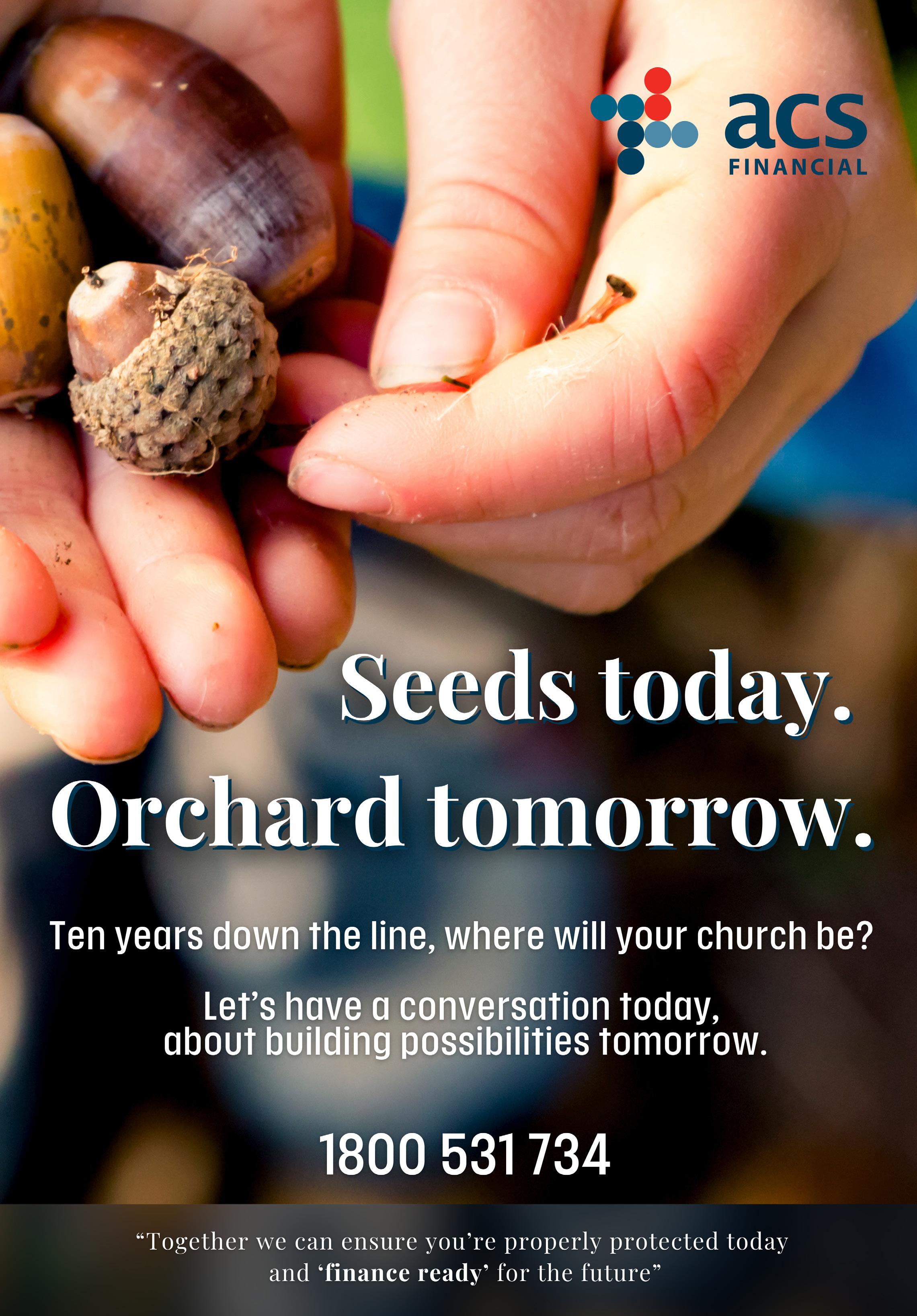
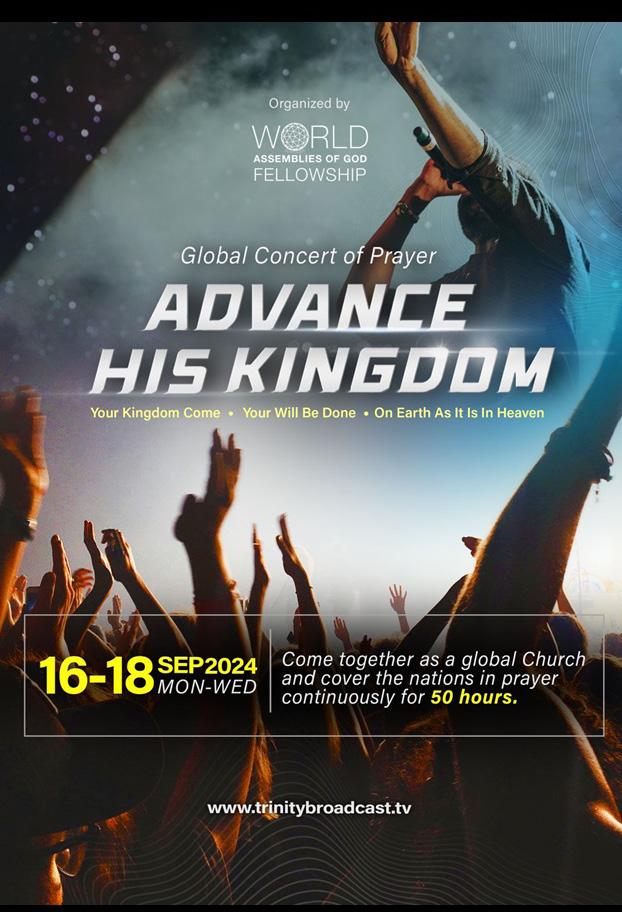
ACCI Field Workers are always looking for ways to reach more people in their communities with the Gospel of Jesus. Two ACCI couples share the building projects God has put on their hearts and their hopes for how these spaces will be used for His glory on the mission field.
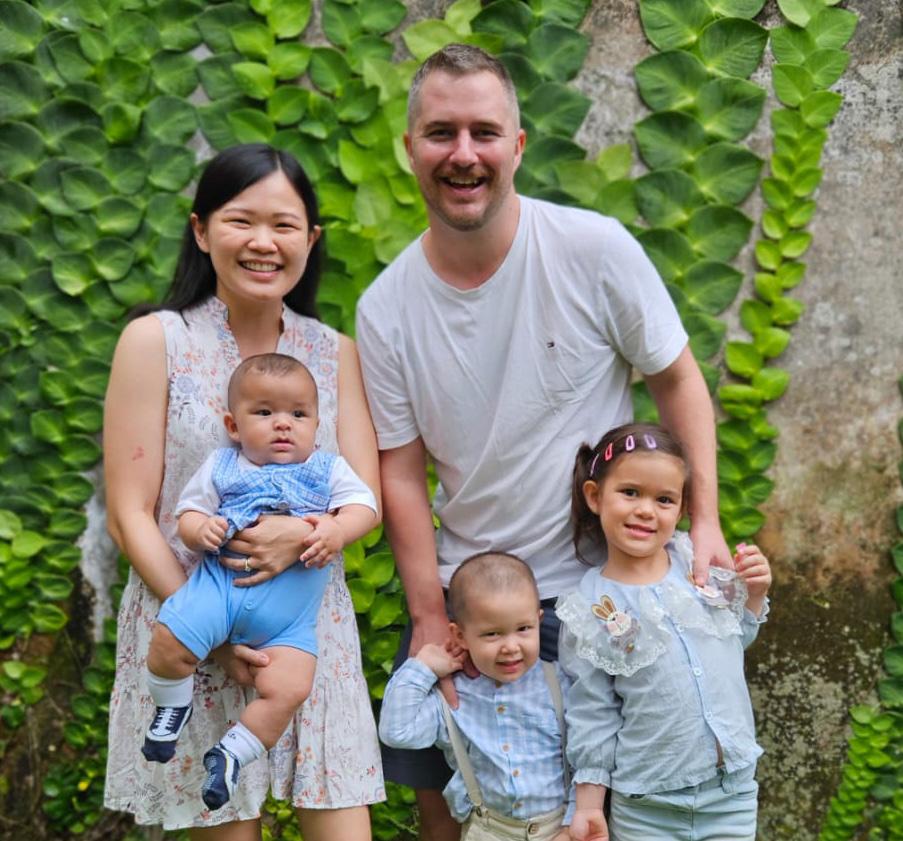
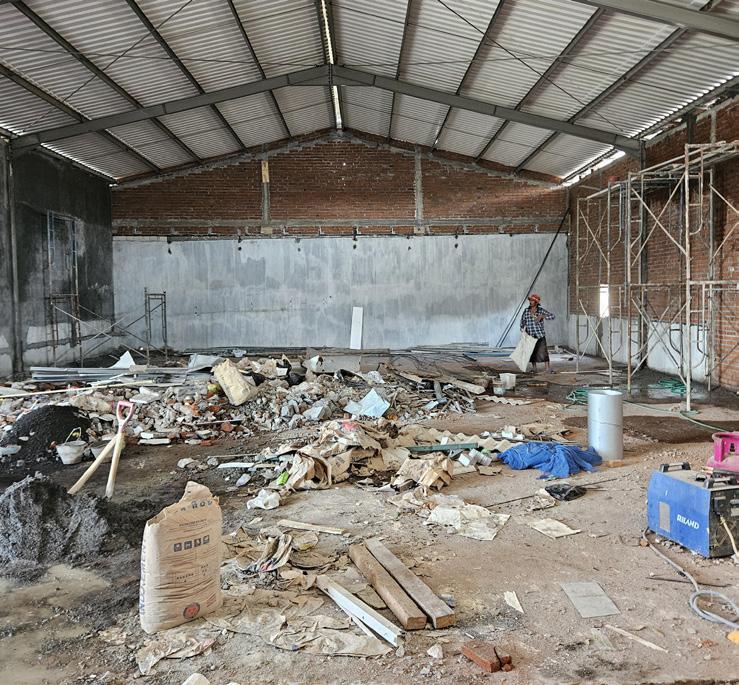
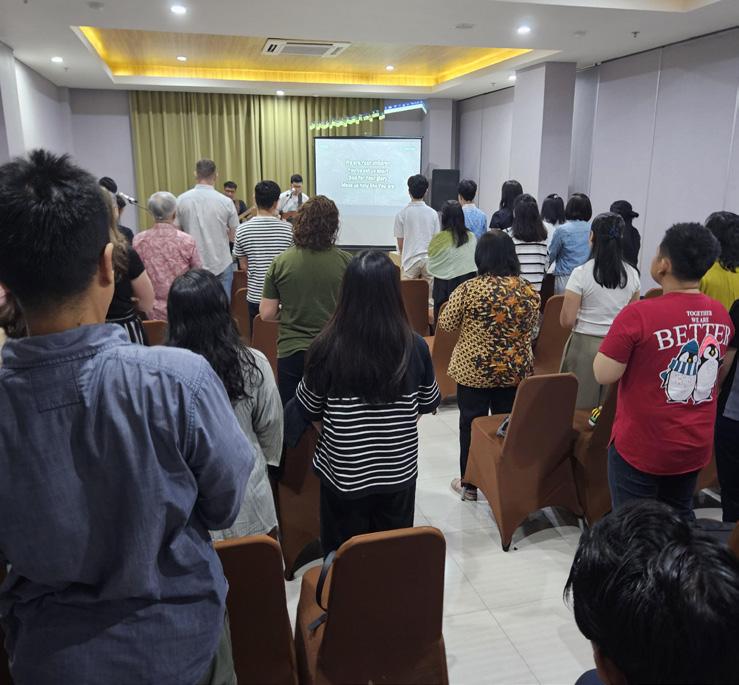
Leighton and Grace Gallagher
Waypoint Community Church
In March 2024, our young family of five relocated to the city of Malang to plant Waypoint Community Church. Previously we’d been making regular trips to Malang to lead a small group, while pastoring at ICA Church in Surabaya, about 90 km away.
Momentum in the group has been building, with people responding well to the strong emphasis we’re putting on discipleship. We’ve been seeing 40-50 people show up to our weekly gatherings (mostly young people) and are about to commence Sunday services.
Our group quickly outgrew all the available venues in Malang, and we couldn’t find any ready-made options to rent, despite an extensive search. So, we’ve secured a long-term lease for a venue which we are currently renovating and repurposing for our needs. It’s in a fantastic location in a prominent area of Malang, close to several universities, schools, and major housing complexes.
We’re currently midway through the renovation process, which we are completing in stages – as our financial situation allows. Thankfully we can use one corner of the building while renovations are underway.
Having this building will allow us to gather, build community and become a hub for community projects. We plan to develop a ‘community centre’ and hope to open our space for other community groups to use too. Activities could include student movie nights, language exchange programs, faith-based discussions, lowcost bazaars and more. To facilitate this, we are making each space ‘multi-purpose’. We also plan to use our building to host activities that support other church planters across the region. Our goal is to take the whole church on mission with us. Our heart is to see those at Waypoint Community Church discipled in faith and community in order that they themselves may reach outwards with the love and hope of Jesus.
John and Christine Carby Nissi Christian Academy
We moved in 2015, with two small children, to start a school on the island of Siargao. I (Christine) was a school teacher in Australia and my parents were missionaries in the Philippines when I was younger, so we had some friends and connections here already.
Our heart is to give children in Siargao an opportunity for a quality, yet affordable, Christian education. It can be difficult for children from the provinces to get the kind of education that allows them to be competitive and go to college. We wanted to change that. We also wanted to create a school where children could learn about, and love, Jesus. We stand on that verse (from Proverbs 22:6): 'Train up a child in the way he should go and when he is old, he will not depart from it.'
We started the school with 20 children and, in that first year, only offered Kindergarten. The next year we added a Prep class. Our goal is to build one new classroom and/or increase by one grade level every year until we’re able to offer Kindergarten to Grade 12. We’re currently up to Grade Eight and in the next school year (beginning in August), we’ll offer Grade Nine. By then we’ll have 250-260 children coming to our school. Families pay a fee to come here but we charge at the lowest level we can as we don’t want to price families out. This means we rely on support from a few Aussie churches to pay our local teachers’ salaries. We fundraise for the costs of all our new buildings.
Some years it’s been tight and the cost of building supplies continues to rise. But when God gives you a promise and a vision and a mission, He provides the means. We also know that every building we build is another 25 kids we can reach, plus teachers, maintenance staff, even the builders. We’re able to grow our reach and share Jesus with more people with each classroom we add.



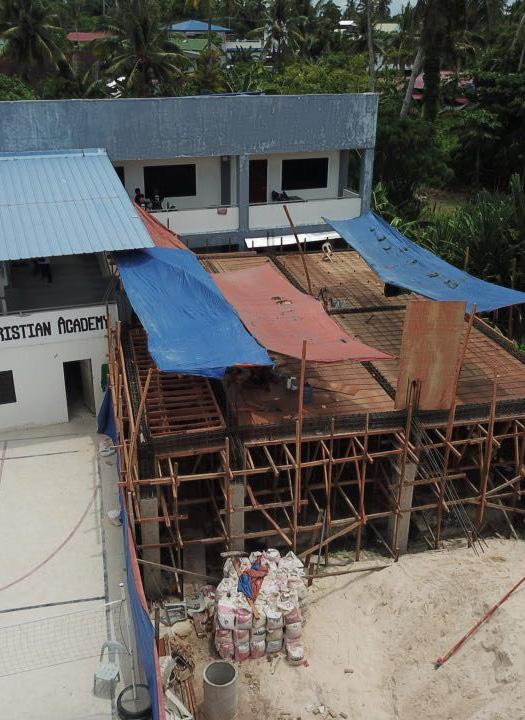

By Jacqueline Grey
We often sing and preach about God’s glory. We see God’s glory in creation (Isaiah 6:3). We live and minister 'for the Glory of God'. We might even audaciously pray like Moses: 'Show me your glory' (Exodus 33:18). We can experience God’s manifested glory. Yet, it’s so hard to define.
What is the glory of God, and why won’t God share His glory with anyone else?
The idea of glory in the Old Testament means heaviness and having substance. Used in reference to a person, it points to their impressiveness.1 That’s why it’s often connected to power. Importantly, God’s power to save. Glorious are God’s wonderful deeds! Swiss theologian Karl Barth once wrote: 'God has and is glory. For God is glorious'.
God’s glory cannot be given to another because it is inexplicably linked to Him. His glory is part of Him. It is who He is. The glory belongs to Him alone.
As Isaiah 42:8 continues, we are told that God will not give His glory to another, “nor my praise to idols.”
Who dares take God’s glory?
Idols compete for the allegiance of people. The false gods in Isaiah made false claims of salvation. But the prophet reveals them for their emptiness and impotency (Isaiah 41:21-24).
Yet, the people still sought the idols. The followers of God still made idols. Why?
Because we crave God’s glory for ourselves. Admit it. We all like a bit of glory. Or a lot.
Isaiah 44 goes on to describe how the people made idols. They carved metal and wood into human form. Isaiah mocks their absurdity. Yet, the people still make the idols. It says the idol-maker 'he makes it in human form, with human beauty' (44:13). The idols are in our image. We make them. We make the idols like us. Well, like our beautiful selves. That is, our facebook profile, ideal self.
What idol do I make?
What is your beautiful image that you make into an idol?
Power and prestige? Sure, we give God the glory for our ministry, but God couldn’t do it without me. I did it. I built this church. This church belongs to me.
Giftedness? Sure, it was the Holy Spirit who empowered me, but I was the one who did that miracle. The Spirit moved through me. I’m the anointed one. I’m the gifted one.
Aspirational Leader? Sure, I follow Christ but you can follow me. Look how I live. Look at my hot spouse. Look at my overseas holiday. Look how blessed I am. I am worthy of imitating.
Popular pastor? Sure, everyone is important but I’m the one everyone wants to talk to. I’ve always got someone next to me. I’m never standing alone at events. I’ve got a seat at every table.
You get the idea. Its all about feeding our need for security. To know that we are impressive and important because other people think we are. In manufacturing
an idol we produce proof that we are worthy: other people think I’m impressive. To achieve our need for impressiveness, we create idols in our human likeness.
My idol-making ensures that I feel important and loved. We are fooled into thinking acceptance must be earned. The irony is that we already are important and loved. At the beginning of Isaiah 42, it says that God sees us: 'Here is my servant, whom I uphold, my chosen, in whom my soul delights.' God already delights in us. We don’t have to prove it to anyone. He speaks tenderly to us: I delight in you. We don’t need to manufacture idols to prove we are cherished. We already are beloved by God.2
The Lord who is God, will not give his glory to these idols. We are His workmanship. We are made in His image. The idols are not God’s image and cannot contain God’s glory. God will not tolerate these idols.
How do we ditch the idols?
One of the ultimate purposes of God’s glory is for us to become like Him. To see God’s glory with unveiled faces and be transformed by His glory (2 Cor 3:18). That is, we don’t manufacture idols into our image. Instead, we become transformed into God’s image. We then reflect the impressiveness of God; not to bring us glory, but to proclaim God’s glory. In this we find our security and acceptance. So, ditch the idols and embrace the process of being altered by God’s glory, from glory to glory, by the power of the Holy Spirit.
Dr Jacqueline Grey is an ACC Pastor and Professor of Biblical Studies at Alphacrucis University College.
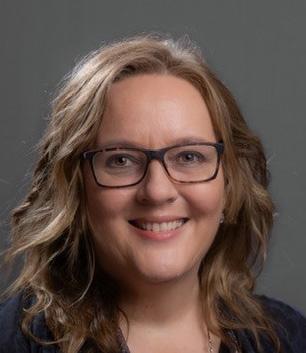
1 Rebecca G.S. Idestrom, Show Me Your Glory: The Glory of God in the Old Testament (Eugene, OR: Pickwick, 2021).
2 Henri J.M. Nouwen, The Life of the Beloved: Spiritual Living in a Secular World (Hodder, UK: 2016).
EXCLUSIVE EXTRACT ADAPTED FROM 'GUARD YOUR HEART' BY IVAN HERALD

By Ivan Herald
The weeping woman had been thrown down in front of Jesus. He did not ignore her offence at law. Quietly, as He stooped down, He wrote in the dust on the ground of the temple precinct. He then gazed directly at her accusers before uttering those amazing, paralysing and convicting words:
'He that is without sin among you, let him first cast a stone at her' (John 8:7 KJV).
Due to its unique context, the whole incident has entered history. It is often referred to as the Pericope Adulterae May our Saviour’s model way of handling the immoral dilemmas of life inspire us all. Let it be the focus of our attitudes towards 'those taken in the very act'
How do we address those 'taken in the very act' of bringing disgrace upon themselves as well as to the Body of Christ?
Can we not see that condemnation belittles us? Finding a redemptive way forward truly marks us as being Christlike. Are we forever to be accused of only ever 'shooting our wounded'? If we are to 'follow in His steps' (I Peter 2: 21), then we have a responsibility to truly learn His ways.
Who among us has not been shocked, saddened, embarrassed, indignant, angry or merely disappointed at the actions of a few? We need to, heavily emphasise a very few. Certain errant ministers and churches worldwide, have shamefully crossed a moral and/or ethical line, abandoning integrity? The sad fact is that in several cases, the churches, ministers and their impact were well-known worldwide.
Some offended and pious ministers have resorted to their private ‘soap-box.’ They articulate loudly the moral wrongs and sins of the fallen. Most of us have been stirred in our spirit. We are too mute with concerning grief over damage to the cause of Christ to speak negatively or critically of what these transgressions have done to the Body of Christ.
In penning these opening words allow me to say: 'Please, please, please, drop the stones.' This book (Guard Your Heart) is not about being judgemental. It is about glorifying Christ and seeing a radiant Church and ministry uplifted for His glory. Let our primary goal encompass being like Jesus.
You might protest: 'Don’t I have a right to speak my mind and criticise the godless actions of a few, that have brought disgrace on The Kingdom of God?'
Maybe you do. But, will that solve anything? I hear you thinking out loud: 'Aren’t we entitled to make an example of such self-centred, arrogant behaviour, that has been virtually accountable to nobody, pontificating their importance and superiority over the average church?
Hasn’t it brought shame to the testimony of the Church and our Saviour?' Yes, but ask yourself again: 'Will attitudes like that build the Kingdom, or dimmish it?'
'There go I, except for the grace of God.'
There would hardly be a minister, pastor, or church leader that has not heard of, and often personally known ministers and churches that have sadly endured moral failure, money mismanagement, abusive authority
accusations or lack of proper governance accountability –in large or small churches.
This is not new. History has sadly been replete with such potentially soul-destroying illustrations since the birth of the Church. Yet, the mighty Church of our Saviour has continued to grow in grace and strength. Tragedy has been turned into triumph in many a place.
When trust in the ministry and the Church is broken, it is difficult to trust again. Minimally, it will take time. Betrayal may evidence itself in damaged self-esteem of those betrayed, anger, a sense of loss, even grief and selfdoubting about lost friendship patterns. Occasionally, there is a preoccupation with negative attitudes because the bright ‘shining light’ that we trusted has turned out to be ‘wanting,’ even dark.
Betrayal hurts because someone you trusted and cared about in leadership seems to have ignored the consequences of their actions, and you were hurt. It is natural to fear and be angry at the same time when trust is betrayed. There comes a violation of important pivotal integrity issues and expectations of trustworthiness. It wounds deeply. A University of the West of England study found that those who feel betrayed in their spiritual friendships perform worse than others. They are more likely to want to reduce or adjust their further level of Church involvement. They do not want to be hurt again. We can all think of ministers, pastors, church leaders and churches that have violated our trust, knowingly or unknowingly. They bring discredit to the Kingdom of God and the dignity of His Church. Some of the individuals, not all, have eased off from walking in Christ’s likeness. Some offenders were so big an influence in the Christian world that many people, ministers, and Churches alike looked up to them. Sadly, many of those who have fallen were using their size and influence to say: 'We have a way to make your church grow. Look at us, how influential we’ve become. Follow us.' Then disaster struck. Certainly, ungodly actions, whether by the church itself, its minister, or both, brought discredit to the cause of Christ. How could we trust again? Trust was compromised. When compromise enters the relationship of any minister and their God, then certainly disappointment at many levels is soon to follow. As an individual begins an ethical slide down, there is a tragic breach of trust with the congregation, as offenders break ranks with integrity. The minister becomes resistant to counsel and cares little for what anybody else thinks or says.
The trust bond, when broken, is hard to take and harder to repair. Often hurt people, ministers, and churches find it difficult to trust again. Violation of trust can have varying consequences for those of us looking at the ‘mess’ some have created. The closer the relationship with the minister or church, the deeper the wound in trusting again. Though trust may be violated when we encounter ministers failing, where do we, or should we, put our trust? Have we subtly, innocently but errantly shifted it to 'successful people' and 'successful churches'? Should we not be focussing our trust in God, not humans who can do disappoint?
Psalm 56:4 directs our heart: 'In God, whose word I praise — in God I trust and am not afraid. What can mere mortals do to me?” NASB. Indeed as ‘mere mortals,’ we humans can disappoint. We can violate trust. Best to focus our trust in God, not the ‘self-appointed celebrities’ of Church life. Take time to think a moment about trust from the context of Psalm 37: 3; Proverbs 3: 5 & 6; Isaiah 26: 3 as well as Jeremiah 17: 7 & 8. Selah: Deeply think about this.
Most of us have no doubt heard of the 'Plane Crash Syndrome'. In preparation for writing this section, I googled how many planes take off and land at Sydney Airport daily. In mid-2023 there are just under 1,000 a day. I was amazed by this number. I am sure we’re all aware that we never hear that statistic on the news each evening. We rarely hear good statistics. Nobody tells us about the successful day in aviation, of the effective take-offs, landings and plane movements. Should one plane, however, be it even an ultralight, hit the runway and crash then it is on the evening news? That parallels us becoming obsessed, repeatedly referring to ministers and Churches that crash. This allows the occasional negative illustrations to control our thinking, instead of good illustrations.
Let’s focus on the thousands of ministers and churches taking off and landing successfully every day. Rejoice in a great universal Church, not be controlled by the occasional crash. Do not take delight in the downfall of some minister or church, just because you did not like them. That is hardly Christ-like. Rejoice that good things ARE happening!
©2024 Exclusive extract adapted from Chapter 1 of Guard Your Heart by Ivan Herald is published with permission. Note that no minister or church is referred to by name anywhere in the book.
by Ivan Herald
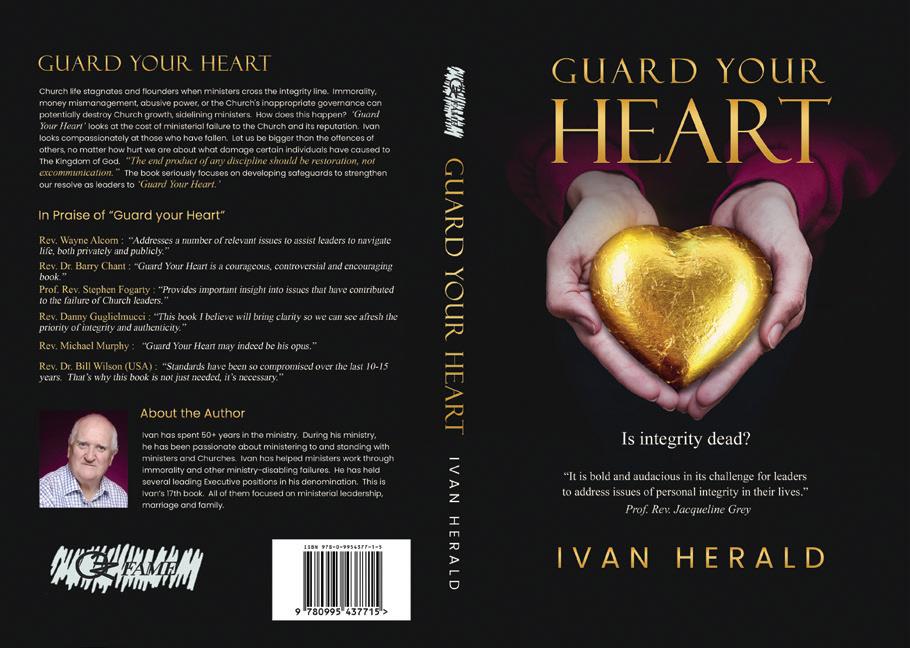
'It is bold and audacious in its challenge for leaders to address issues of personal integrity in their lives.' – Prof. Rev. Jacqueline Grey
'Addresses a number of relevant issues to assist leaders to navigate life, both privately and publicly.' – Rev. Wayne Alcorn
EMAIL YOUR ORDER: ozfame@bigpond.com
Cost $45
($35 book + $10 postage anywhere in Australia)
ACC pastor Ivan Herald has spent over 50 years in the ministry serving in the ACC/ AOG. During his ministry, he has been passionate about ministering to and standing with ministers and local churches. Ivan has helped ministers work through immorality and other ministry-disabling failures. He has held several leading Executive positions in his denomination. 'Guard Your Heart' is Ivan’s 17th bookall are focused on ministerial leadership, marriage and family.

By Cameron Bennett
This generation is more idealistic than ever before, believing wholeheartedly that they can have an indelible impact on their world. They function from the premise that they can, and will, bring about the changes that our society and churches need. If only we can harness and guide this passion, we will be able to build the strongest young generation yet!
With more information available at their fingertips than any other previous generation, what they DON’T need is more of the same; another podcast, another sermon, another course, as good as all these things are.
What they DO need, which we can give them, is YOU. Someone to speak the life giving power of God prophetically over their lives, words that supernaturally engage their hearts and transfix their minds.
This is what will cut through the clutter of opinions and information and set them in alignment with the destiny of God. We need to be like Samuel to David - to see their potential with prophetic eyes and call out the God purpose in every young person we come in contact with.
This is what will propel them forward into a partnership with God that will see a generation rise up with courage to change the course of the world. So what does this look like in practical terms?
Young people need to have vision put in to them and it is done by the life giving words that you speak. They thrive on encouragement and cannot be told enough that God sees them, loves them and has an incredible plan for their lives.
2.
We build strong young people when we shape strong character. This is done with conversations. Ask questions, get involved in their lives, teach and guide them. Let them know that who they are behind closed doors is important. This is the anchor that will steady them.
3. EMPOWER
Gen Z’s natural leadership style is to collaborate. Empower them by creating opportunities. Maybe it’s putting a camera in their hand, involving them in graphic design, leading a prayer meeting, serving on production, MC a service, tag team preaching, teaching them how to budget for an event... the ideas are endless.
By pouring vision in, challenging and empowering them, we are equipping them for their call. This is the time in their faith formation and discipleship journey to speak destiny and adventure into their hearts. Their hearts are so ready to be engaged with God’s purposes.
We are not discipling them to just get through their teenage years but to raise giants in the faith that can and will make a significant difference in the world and it’s up to us to prepare them well for the challenges ahead.




Rethinking Power & Authority in Christian Leadership by
Grant Windle
He Counted Them offers an unflinching glimpse into the journey of ACC pastor Grant Windle, as he reflects on over four decades of church leadership. Windle confronts his own struggles with the profound paradox of being both a servant and a leader, as taught and exemplified by Jesus himself.
Each chapter marks a trail through the landscape of leadership, including:
The value Jesus placed on the individual
Celebrating the shepherdpastor
A side of Jesus that might startle
The dark side of controlling power through history
The current judgment on the misuse of power
Debunking myths about servant-leadership power
by Ivan Herald
Church life stagnates and flounders when ministers cross the integrity line. Immorality, money mismanagement, abusive power, or the church's inappropriate governance can potentially destory church growth, sidelining ministers. How does this happen?
Guard Your Heart looks at the cost of ministerial failure to the Church and its reputation.
ACC pastor Ivan Herald looks compassionately at those who have fallen. Let us be bigger than the offences of others, no matter how hurt we are about what damage certain individuals have caused to the Kingdom of God. This book seriously focuses on developping safeguards to strengthen our resolve as leaders to 'guard your heart'.
It is worthy to note that no minister or church is referred to by name anywhere in the book.
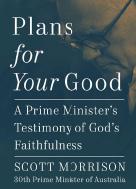
PLANS FOR YOUR GOOD A Prime Minister's Testimony of God's Faithfulness
by Scott Morrison
Australia's 30th Prime Minister Scott Morrison offers a unique insider's account of a Christian who was open about his faith and operated at the top level of politics for more than a decade. Less political memoir and more pastoral encouragement, he is passionate about encouraging others to discover how they can access and see the many blessings of God in their own lives, no matter their circumstances.
He draws on Jeremiah 29:11, that God's plans are for our good and not our harm, to give us a future and a hope.
Full of fascinating insights into the handling of some of the most significant global events and issues of our time Morrison's honest, vulnerable and reflective answers offers a unique lens to better understand your relationship with God and the blessing that can flow from such a relationship.

ACC EMAG #3 2024
Published by Australian Christian Churches. Editor: Daryl-Anne Le Roux editor@acc.org.au
Graphics & Media Assistant: Kieran Carlos
Proofreader: Elba Broadhead
Photography by:
p. 1 iStock
p. 4 Instagram @accsnapshot
p. 5 Alphacrucis University College
p. 8 Calvary Christian Church
p. 9 Calvary Christian Church
p. 13 Pexels / Fauxels
p. 15 Unsplash / Nadine Shaabana
p. 17 Oasis Church
p. 18 Pexels / Anthony Shkraba
p. 19 Hope Centre
p. 23 Hope Centre
p. 24 Lifehouse
p. 26 ACC National
p. 28 Rivers Church
p. 31 Calvary Church
p. 33 Calvary Church
p. 34 Calvary Church
p. 36 ACCKids
p. 38 Lighthouse Wolongong
p. 43 ACCI
p. 44 ACCI
p. 48 Pexels /Myfoodie
p. 53 Youth Alive Australia
ACC EMAG is published four times a year. Visit www.acc.org.au/emag to read more editions.
ACC National PO Box 8093 Norwest NSW 2153
No part of this magazine may be reproduced without the written permission of the publisher. All rights reserved. ©2024 Australian Christian Churches.